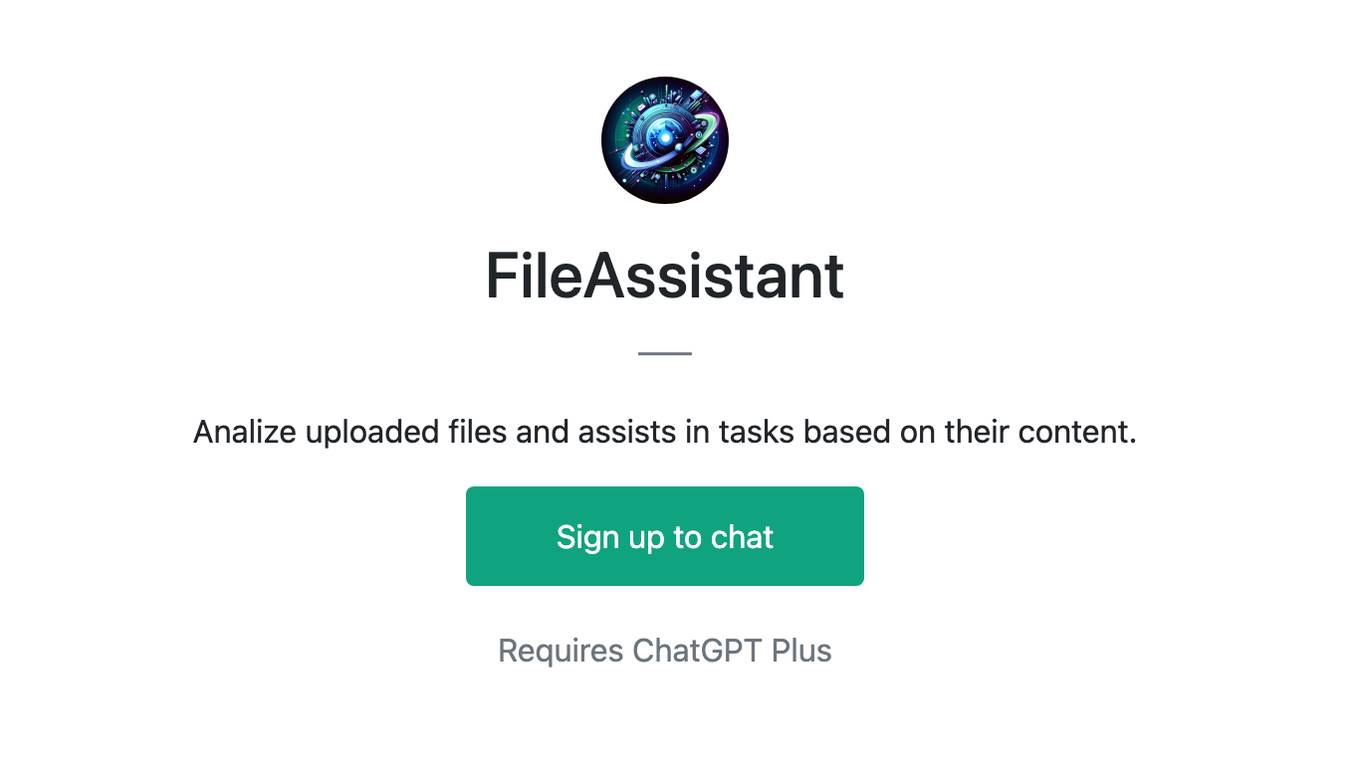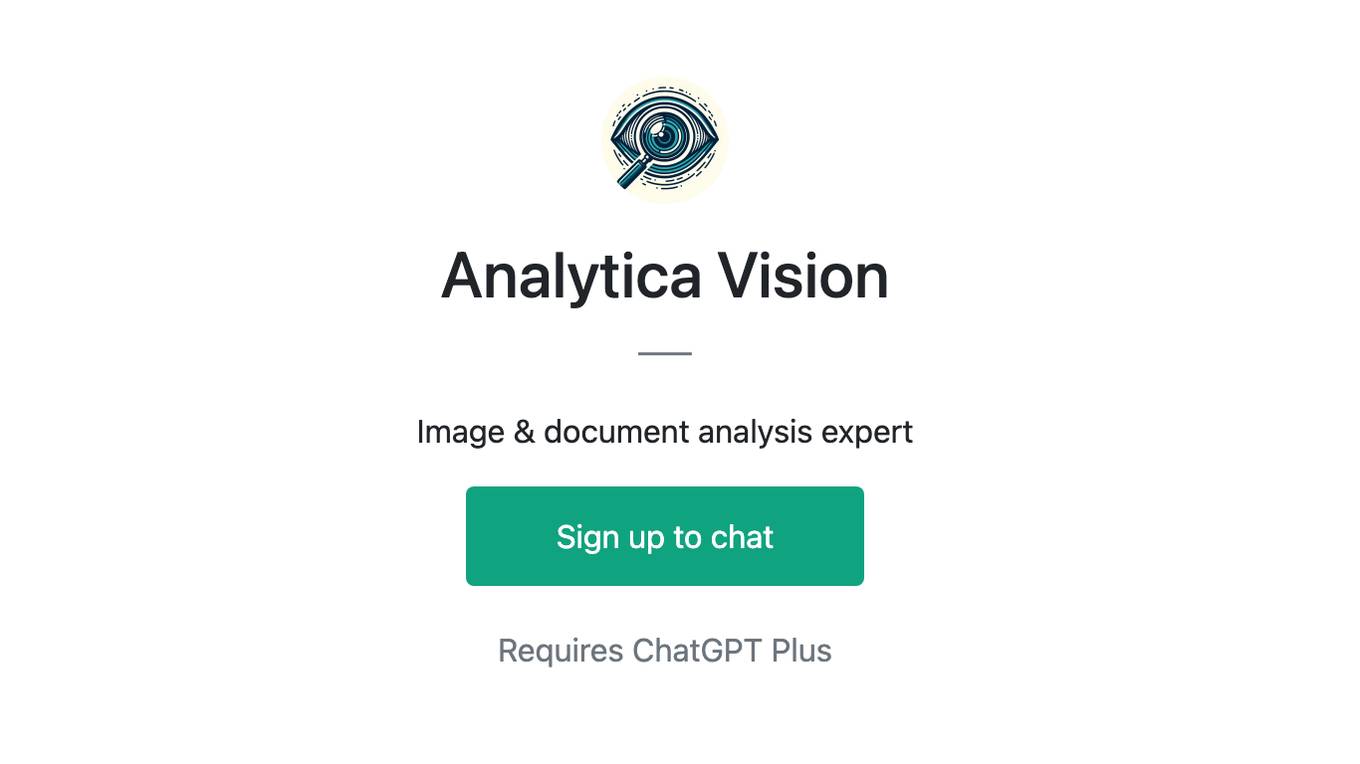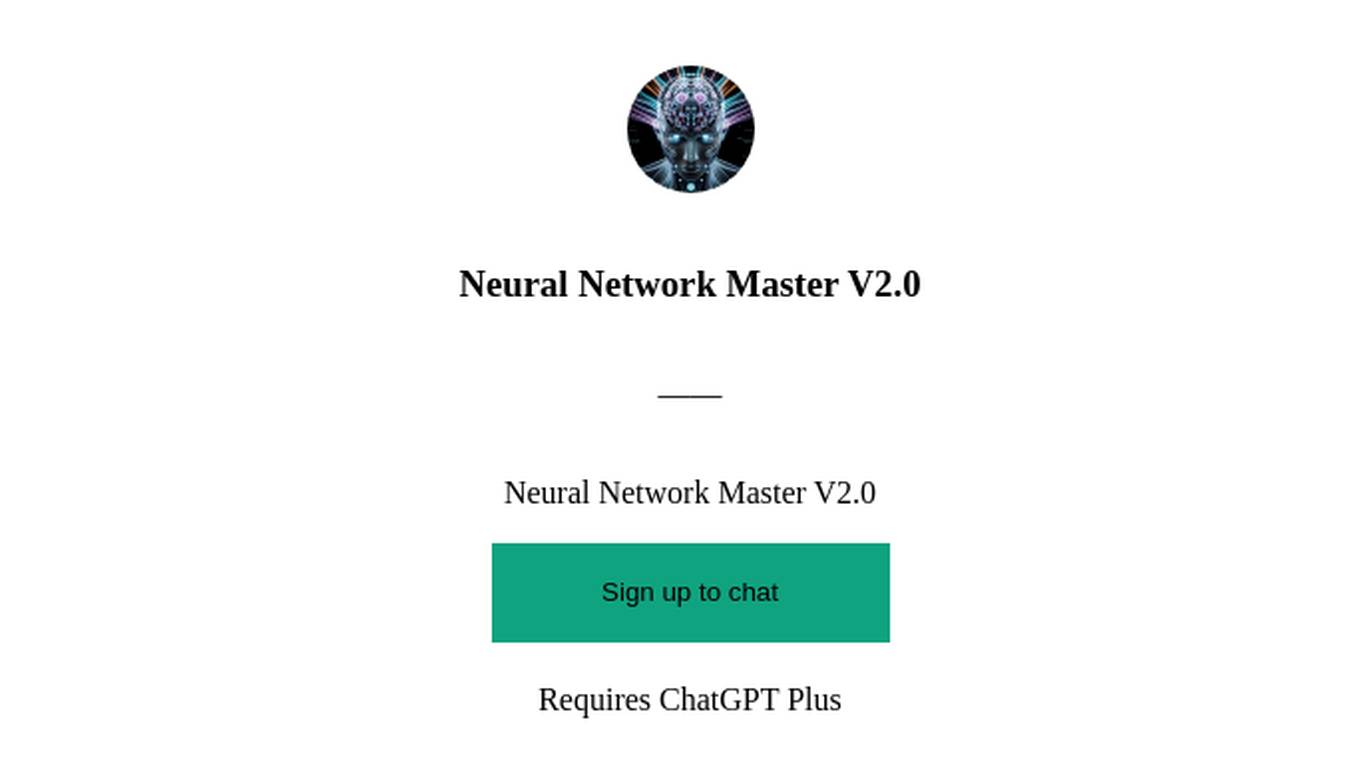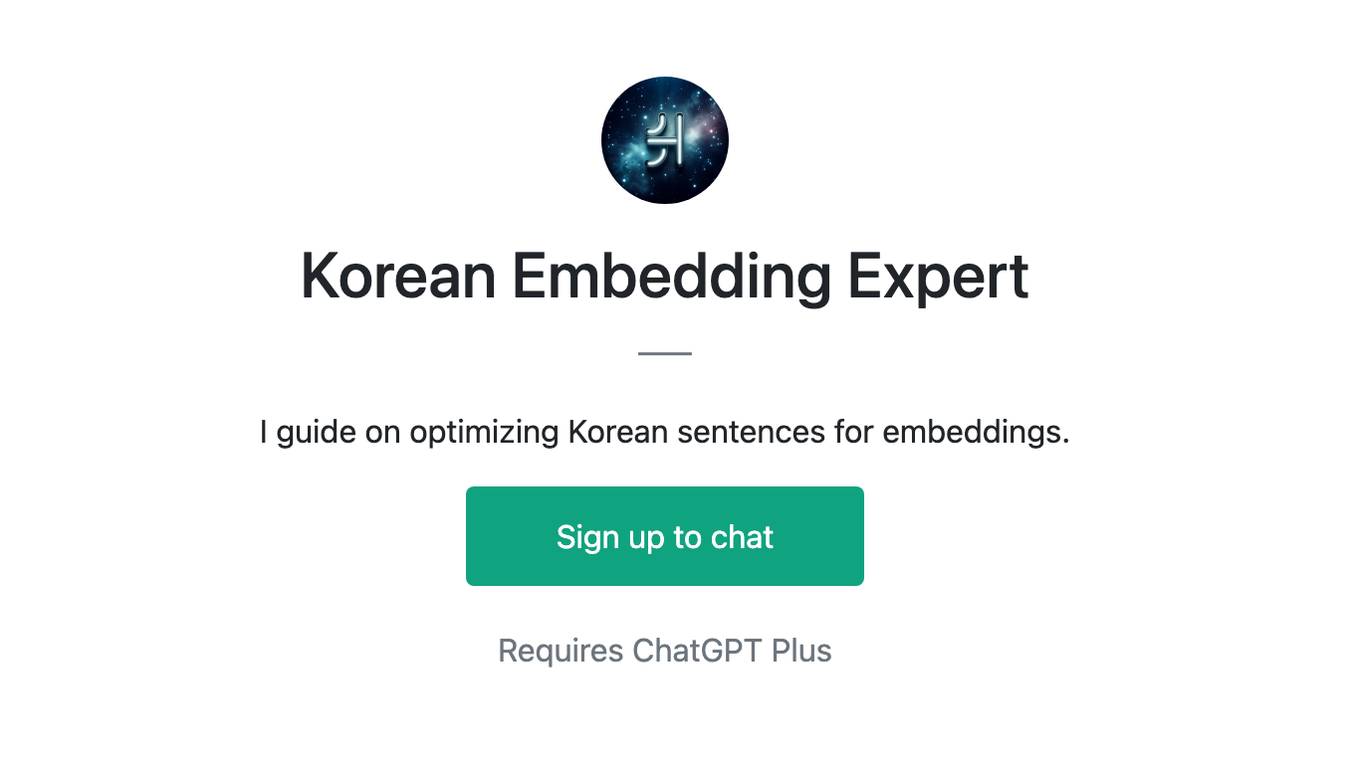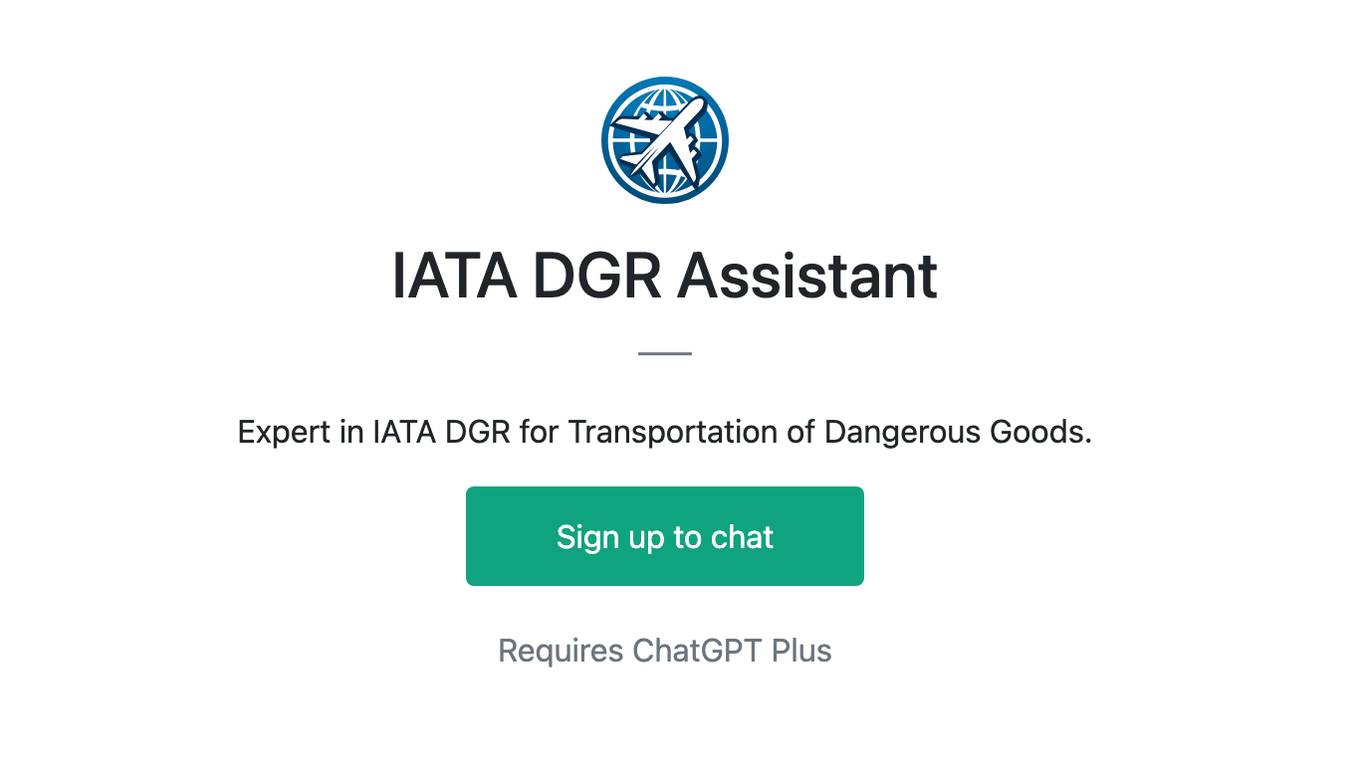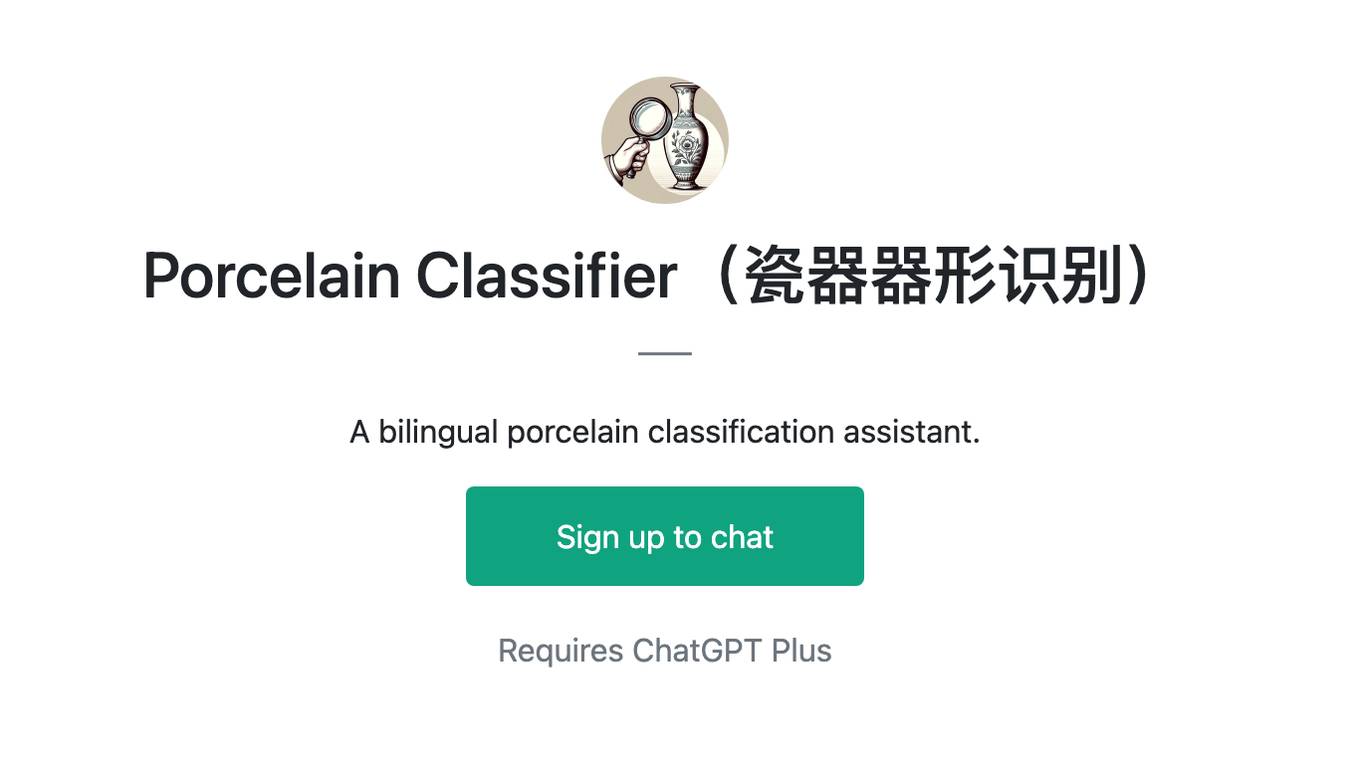Best AI tools for< Classify Data >
20 - AI tool Sites
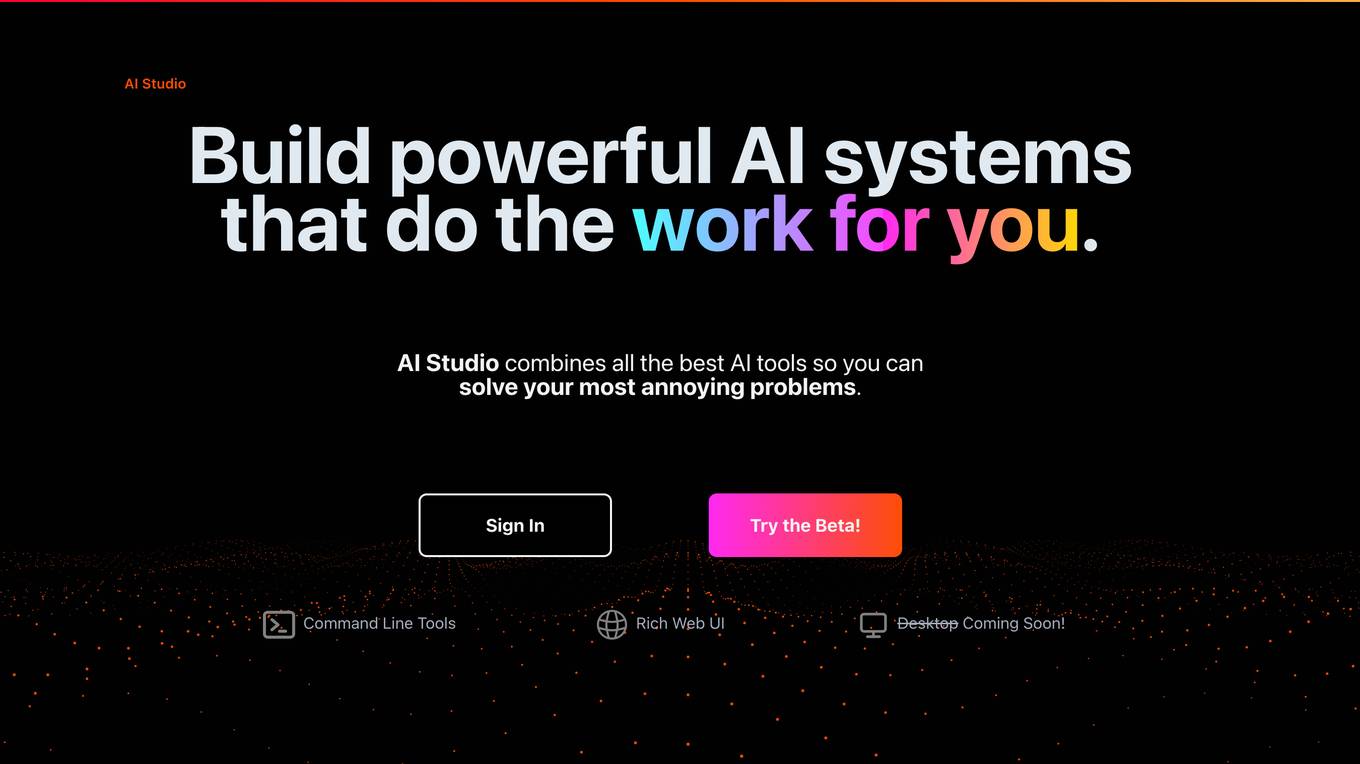
AI Studio
AI Studio is a powerful AI application that allows users to build advanced AI systems without the need for coding. It combines various AI tools to help users solve complex problems efficiently. The platform offers a user-friendly interface and a range of features to support users in creating innovative solutions using artificial intelligence technology.
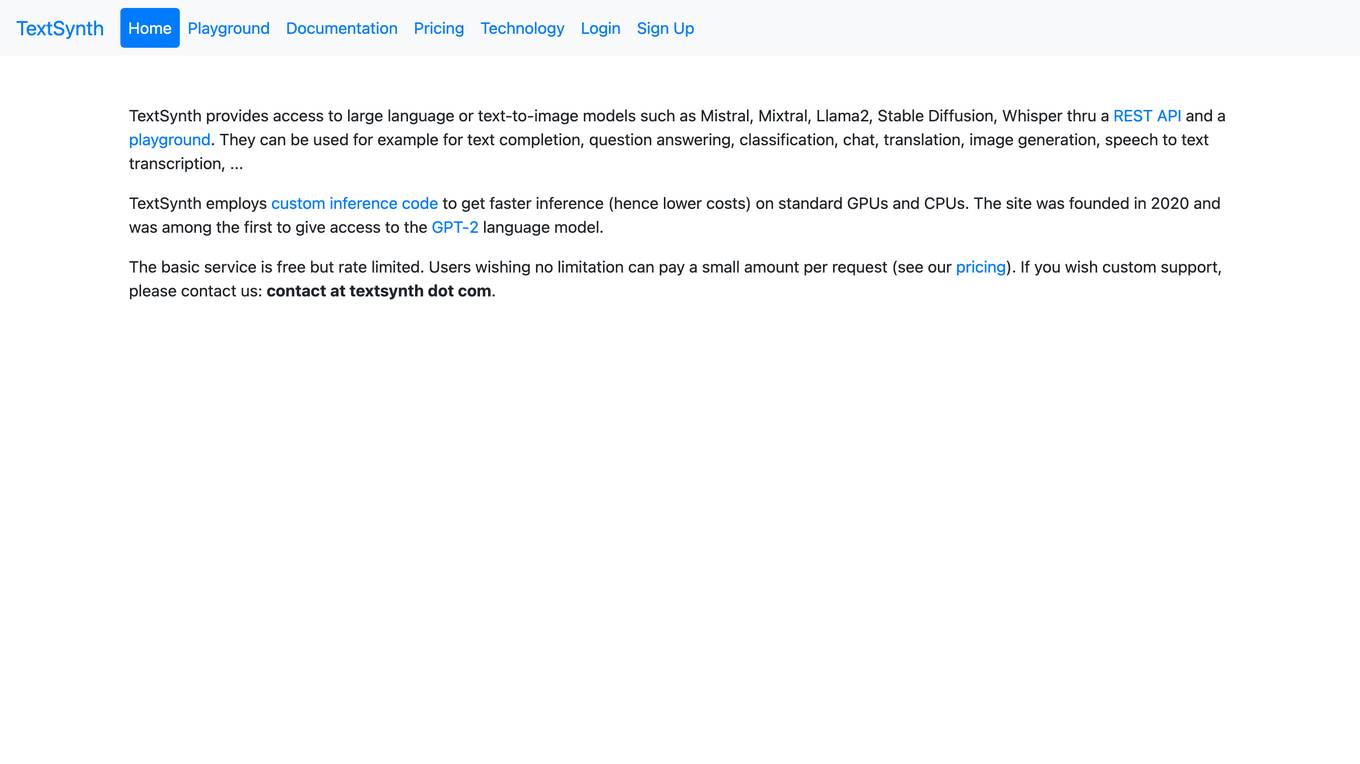
TextSynth
TextSynth is an AI tool that provides access to large language models such as Mistral, Llama, Stable Diffusion, Whisper for text-to-image, text-to-speech, and speech-to-text capabilities via a REST API and a playground. It employs custom inference code for faster inference on standard GPUs and CPUs. Founded in 2020, TextSynth was among the first to offer access to the GPT-2 language model. The service is free with rate limitations, but users can opt for unlimited access by paying a small fee per request. All servers are located in France.
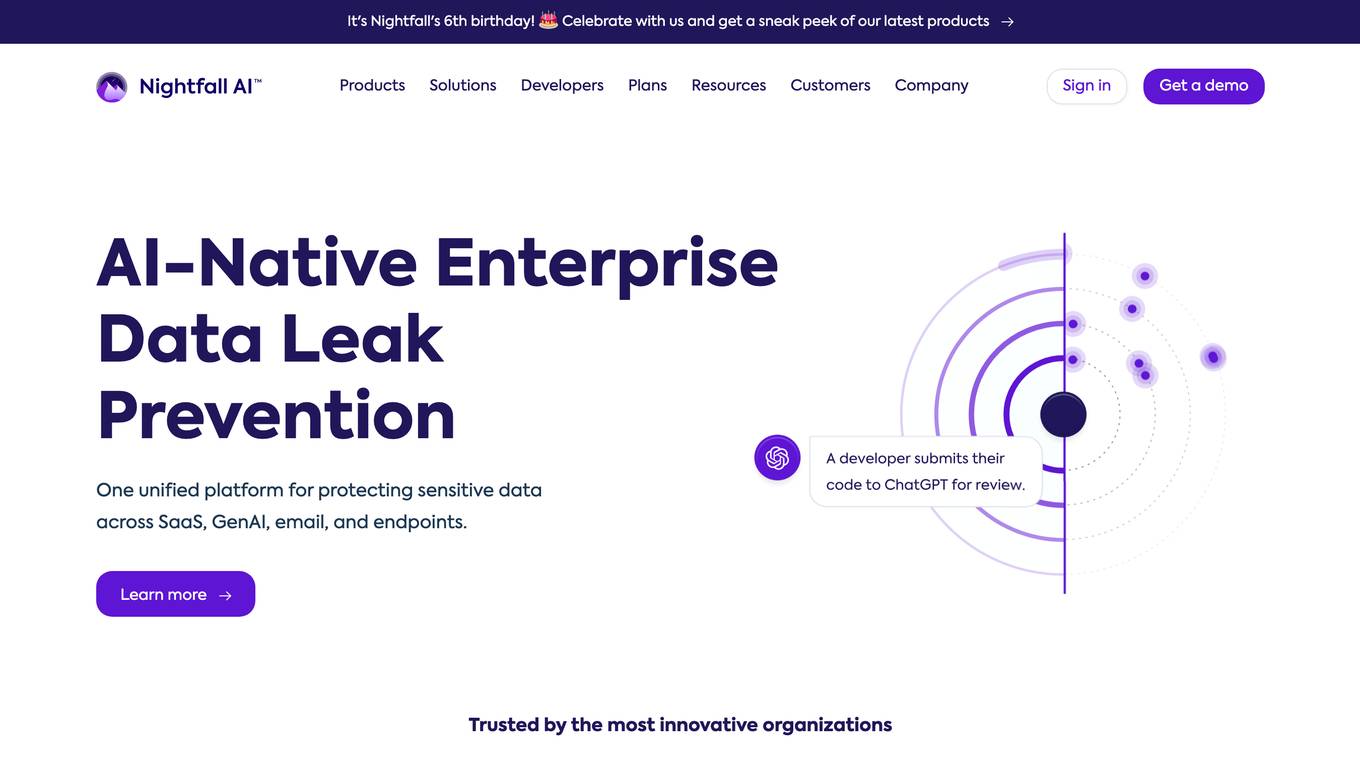
Nightfall AI
Nightfall AI is an all-in-one data loss prevention platform that helps organizations prevent data leaks by putting data loss prevention on autopilot across SaaS & Gen AI apps, endpoints, and browsers. It offers features such as data exfiltration prevention, data detection & response, and data discovery & classification. Nightfall AI uses AI-powered LLM & behavioral models to deeply understand content sensitivity and data lineage, providing complete coverage across various applications and devices. The platform ensures frictionless deployment & maintenance with API-based integrations and lightweight agents, offering a streamlined user experience for quick understanding of exposure and user intent. Nightfall AI also involves and coaches end users to self-remediate, reducing the burden on SOC teams.
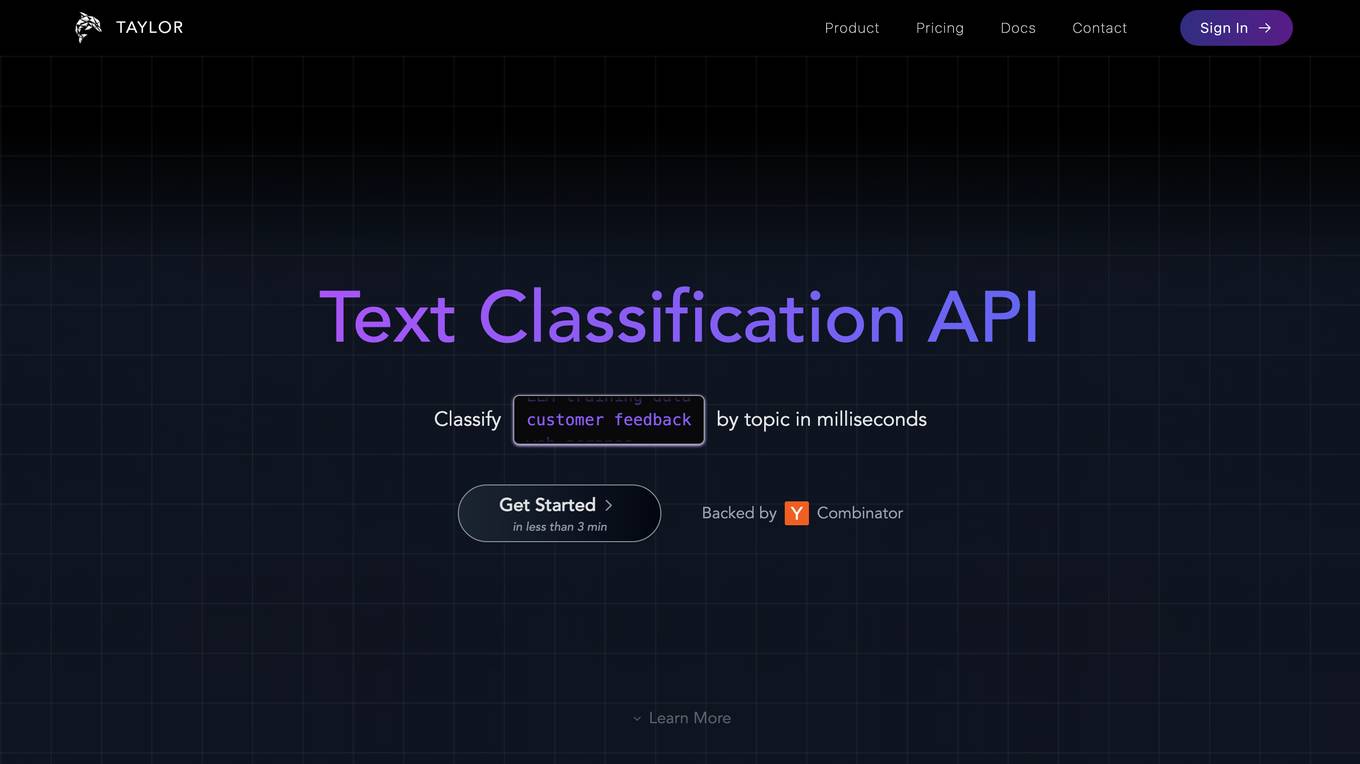
Taylor
Taylor is a deterministic AI tool that empowers Business & Engineering teams to enhance data at scale through bulk classification. It offers a Control Panel for Text Enrichment, enabling users to structure freeform text, enrich metadata, and customize enrichments according to their needs. Taylor's high impact, easy-to-use platform allows for total control over classification and extraction models, driving business impact from day one. With powerful integrations and the ability to integrate with various tools, Taylor simplifies the process of wrangling unstructured text data.
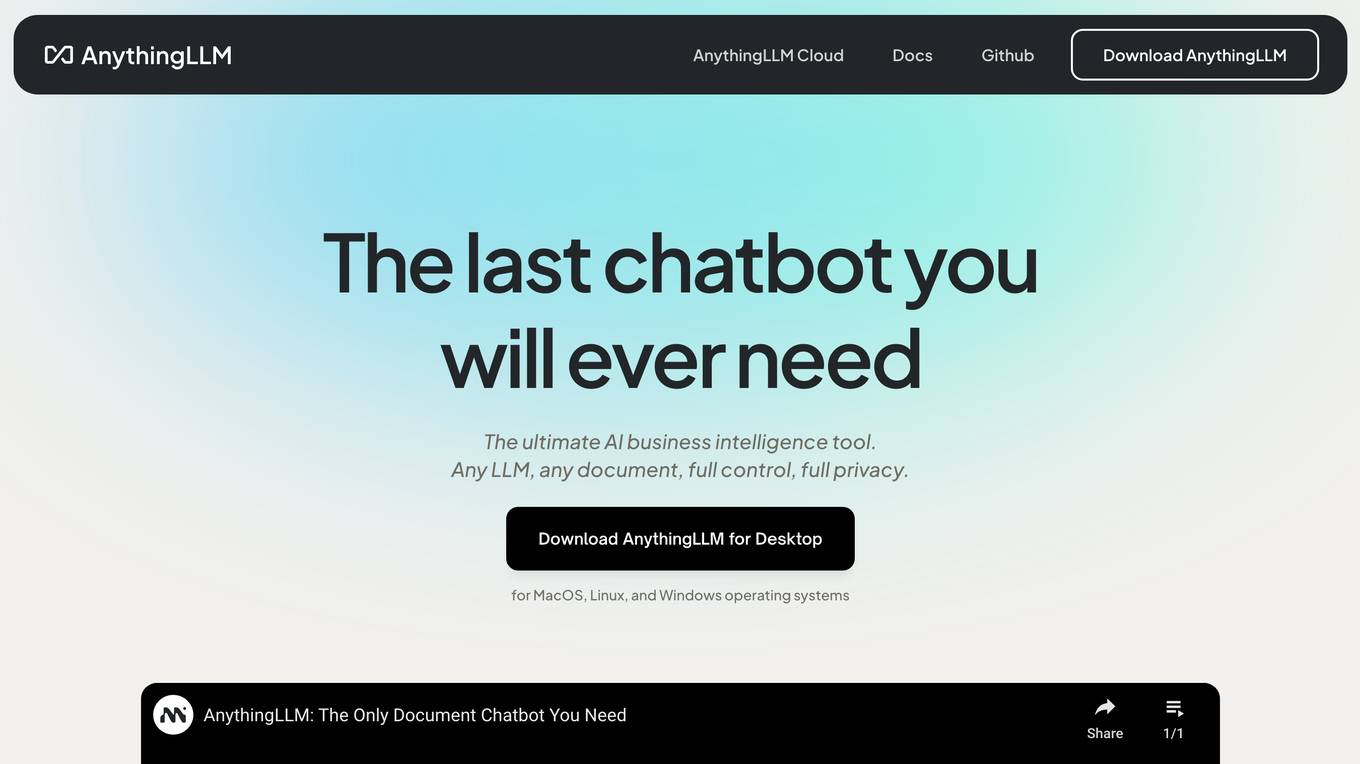
AnythingLLM
AnythingLLM is an all-in-one AI application designed for everyone. It offers a comprehensive suite of tools for working with LLMs (Large Language Models), documents, and agents in a fully private manner. Users can download AnythingLLM for Desktop on Windows, MacOS, and Linux, enabling flexible one-click installation. The application supports custom model integration, including closed-source models like GPT-4 and custom fine-tuned models like Llama2. With the ability to handle various document formats beyond PDFs, AnythingLLM provides tailored solutions with locally running defaults for privacy. Additionally, users can access AnythingLLM Cloud for extended functionalities.
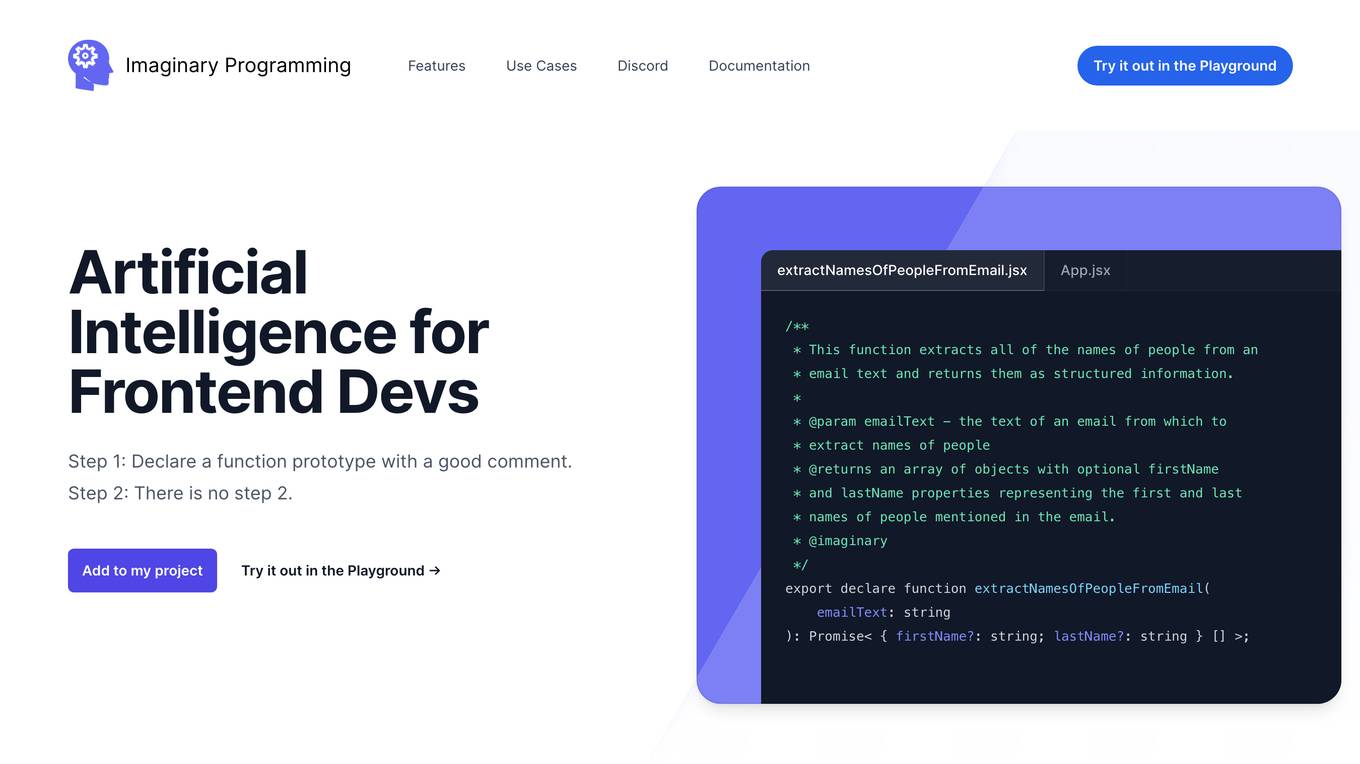
Imaginary Programming
Imaginary Programming is an AI tool that allows frontend developers to leverage OpenAI's GPT engine to add human-like intelligence to their code effortlessly. By defining function prototypes in TypeScript, developers can access GPT's capabilities without the need for AI model training. The tool enables users to extract structured data, generate text, classify data based on intent or emotion, and parse unstructured language. Imaginary Programming is designed to help developers tackle new challenges and enhance their projects with AI intelligence.
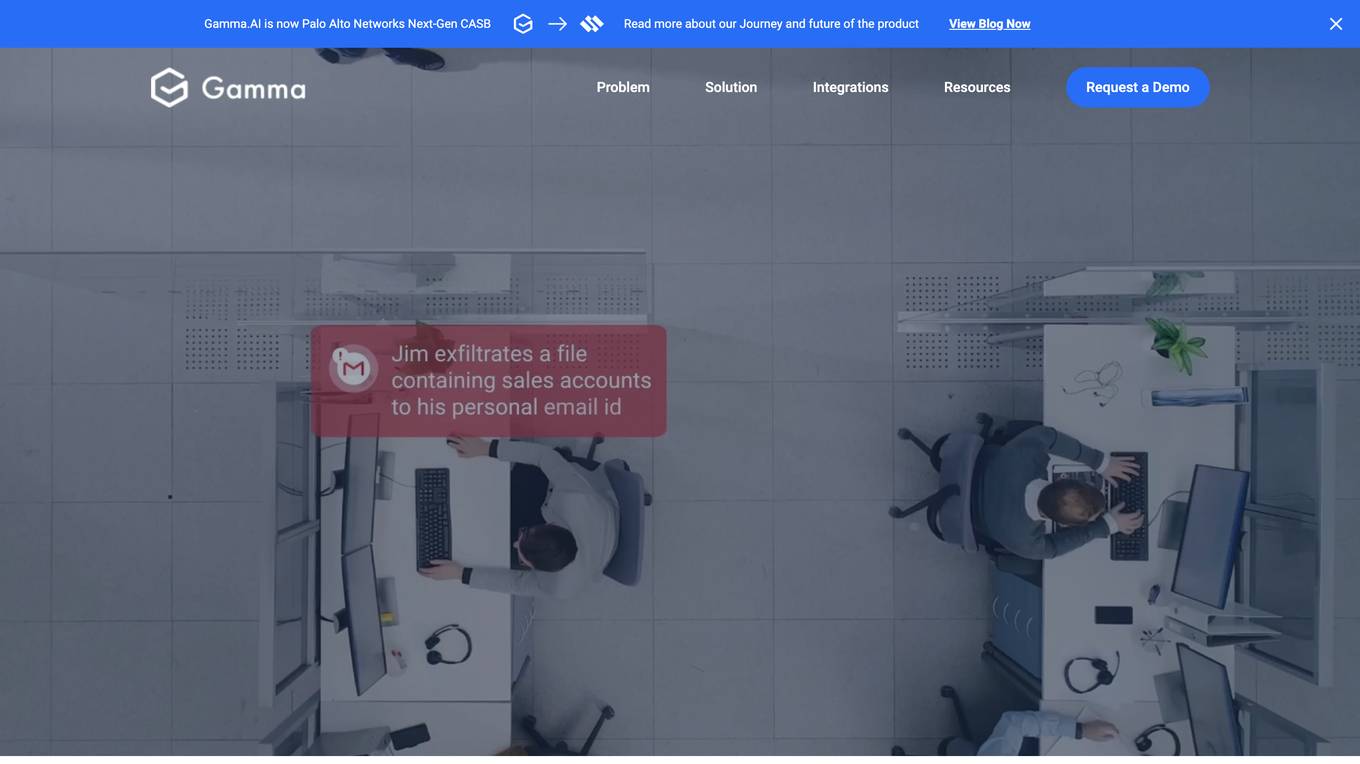
Gamma.AI
Gamma.AI is a cloud-based data loss prevention (DLP) solution that uses artificial intelligence (AI) to protect sensitive data in SaaS applications. It provides real-time data discovery and classification, user behavior analytics, and automated remediation capabilities. Gamma.AI is designed to help organizations meet compliance requirements and protect their data from unauthorized access, theft, and loss.
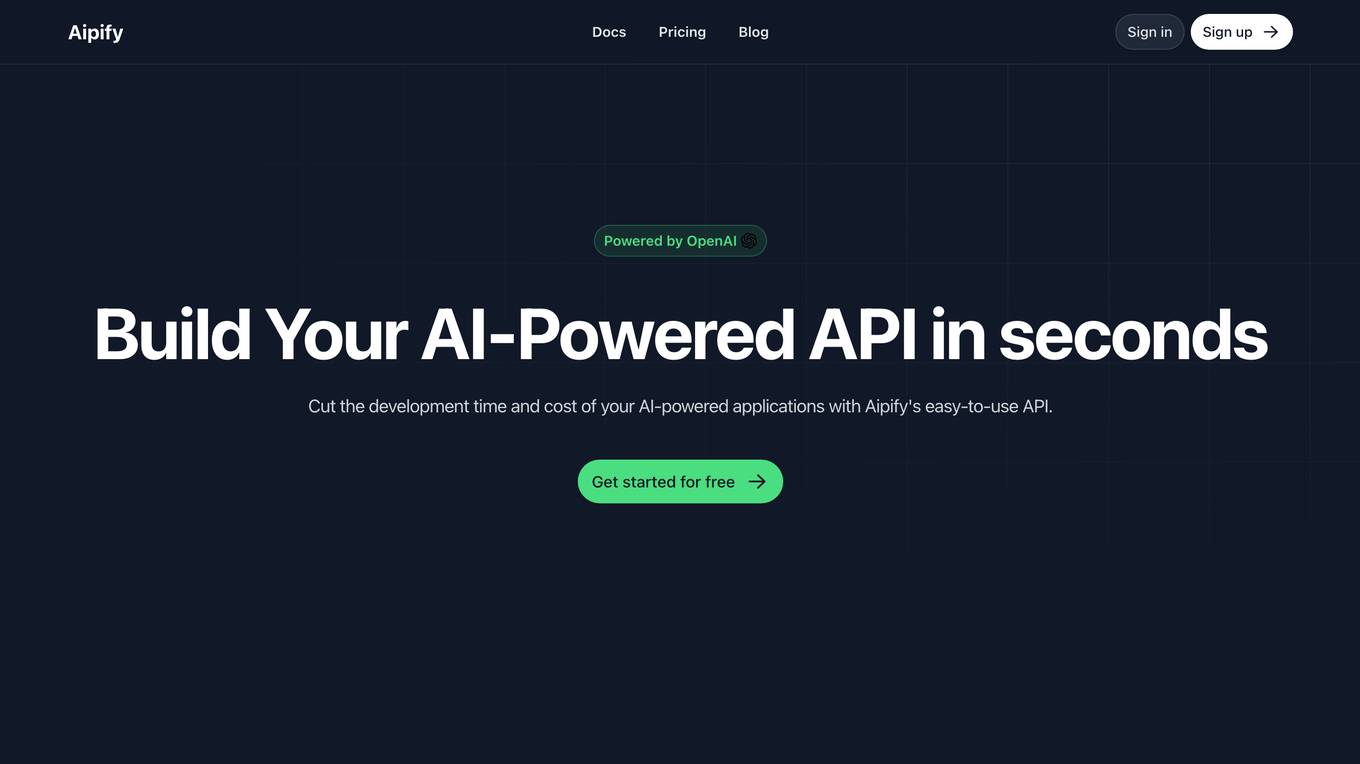
Aipify
Aipify is a platform that allows users to build AI-powered APIs in seconds. With Aipify, users can access the latest AI models, including GPT-4, to enhance their applications' capabilities. Aipify's APIs are easy to use and affordable, making them a great choice for businesses of all sizes.
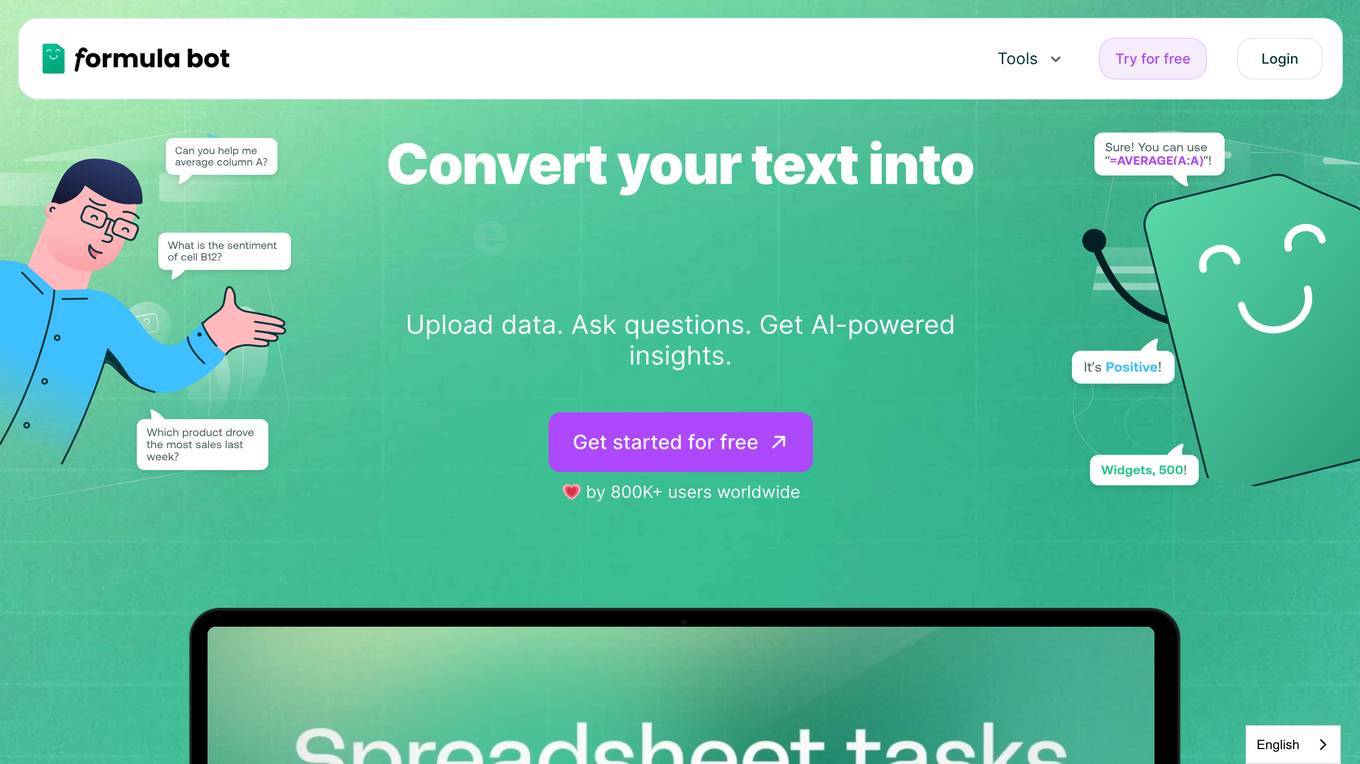
Formula Bot Tools
Formula Bot Tools is a website that provides AI-powered tools for working with data and spreadsheets. The website offers a variety of generators, including an Excel formula generator, a SQL query generator, and a spreadsheet generator. It also offers a data analyzer that can help users analyze their data through a simple conversation. Additionally, the website offers AI in spreadsheets, which can help users automate boring tasks. The website is trusted by Fortune 500, government, and small and medium-sized businesses.
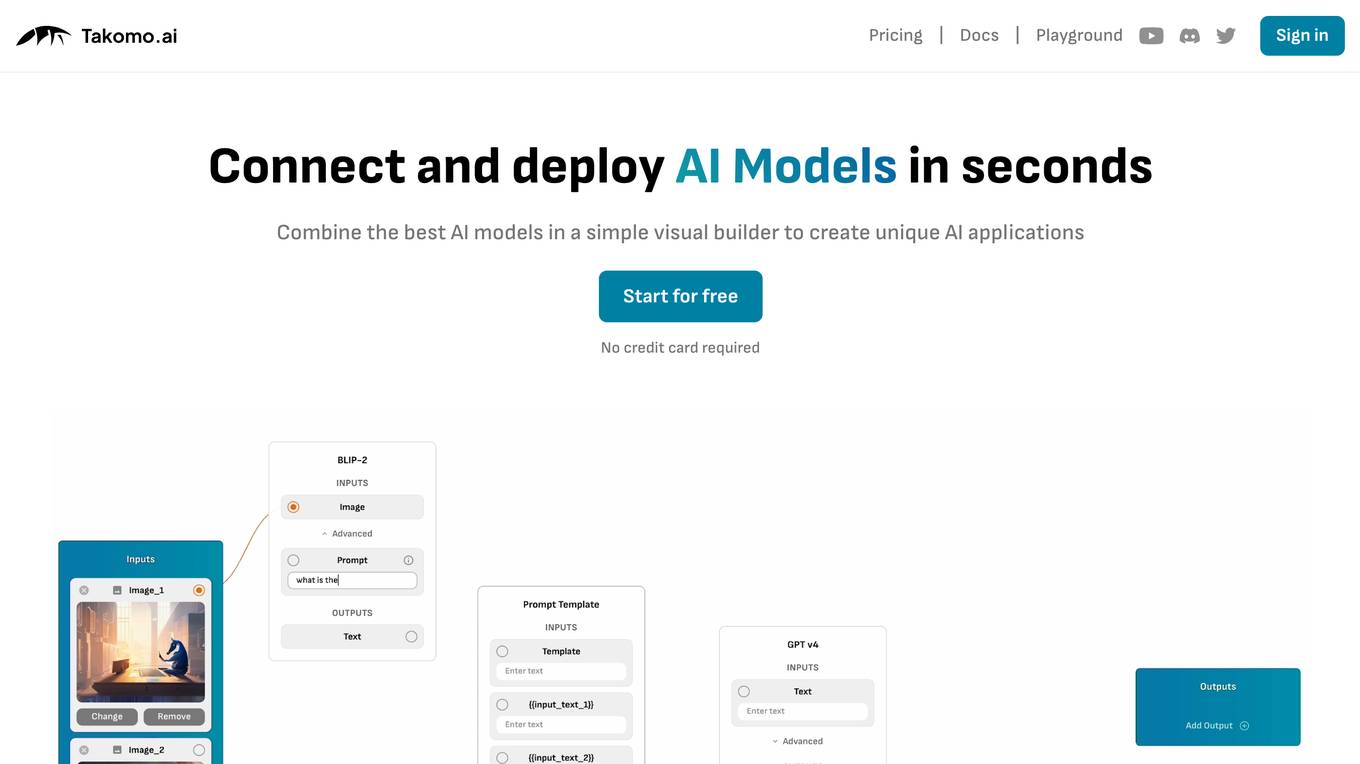
Takomo.ai
Takomo.ai is a no-code AI builder that allows users to connect and deploy AI models in seconds. With Takomo.ai, users can combine the best AI models in a simple visual builder to create unique AI applications. Takomo.ai offers a variety of features, including a drag-and-drop builder, pre-trained ML models, and a single API call for accessing multi-model pipelines.
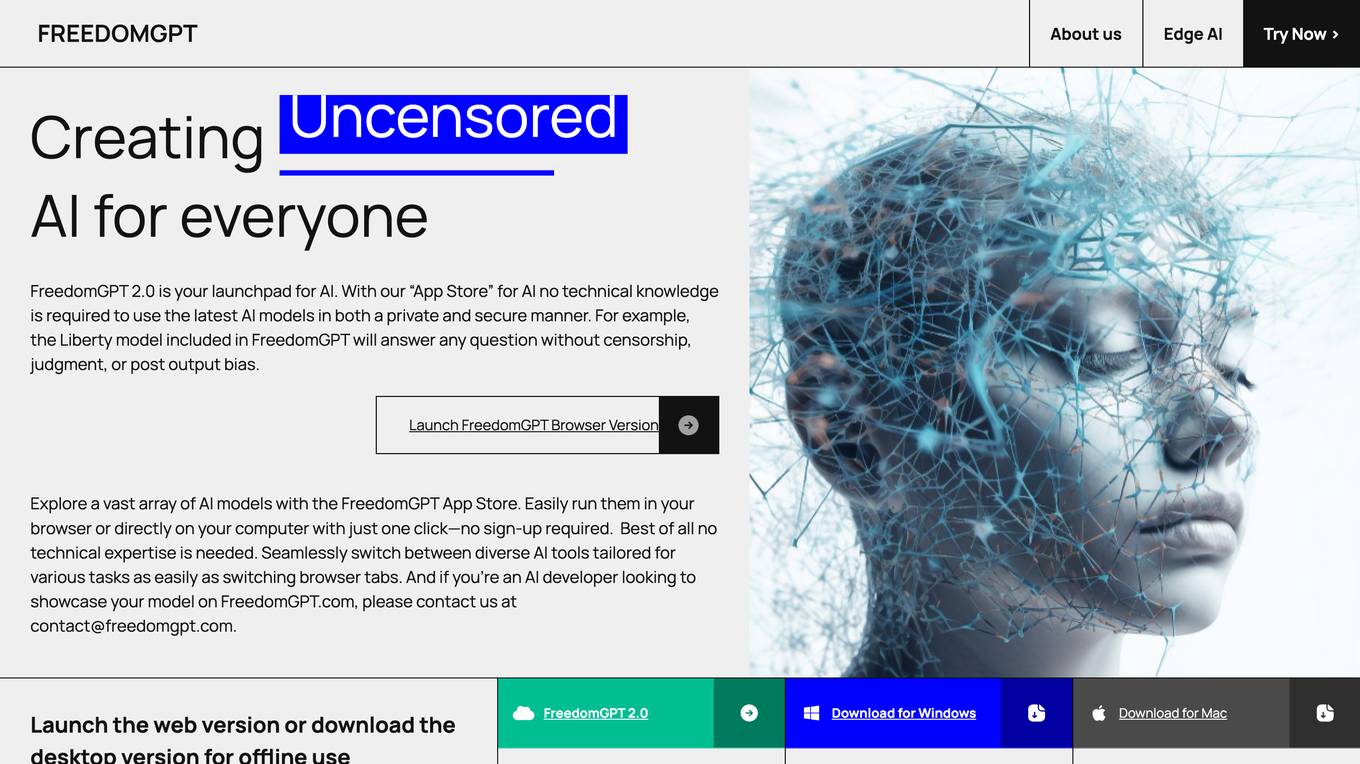
FreedomGPT
FreedomGPT is a powerful AI platform that provides access to a wide range of AI models without the need for technical knowledge. With its user-friendly interface and offline capabilities, FreedomGPT empowers users to explore and utilize AI for various tasks and applications. The platform is committed to privacy and offers an open-source approach, encouraging collaboration and innovation within the AI community.
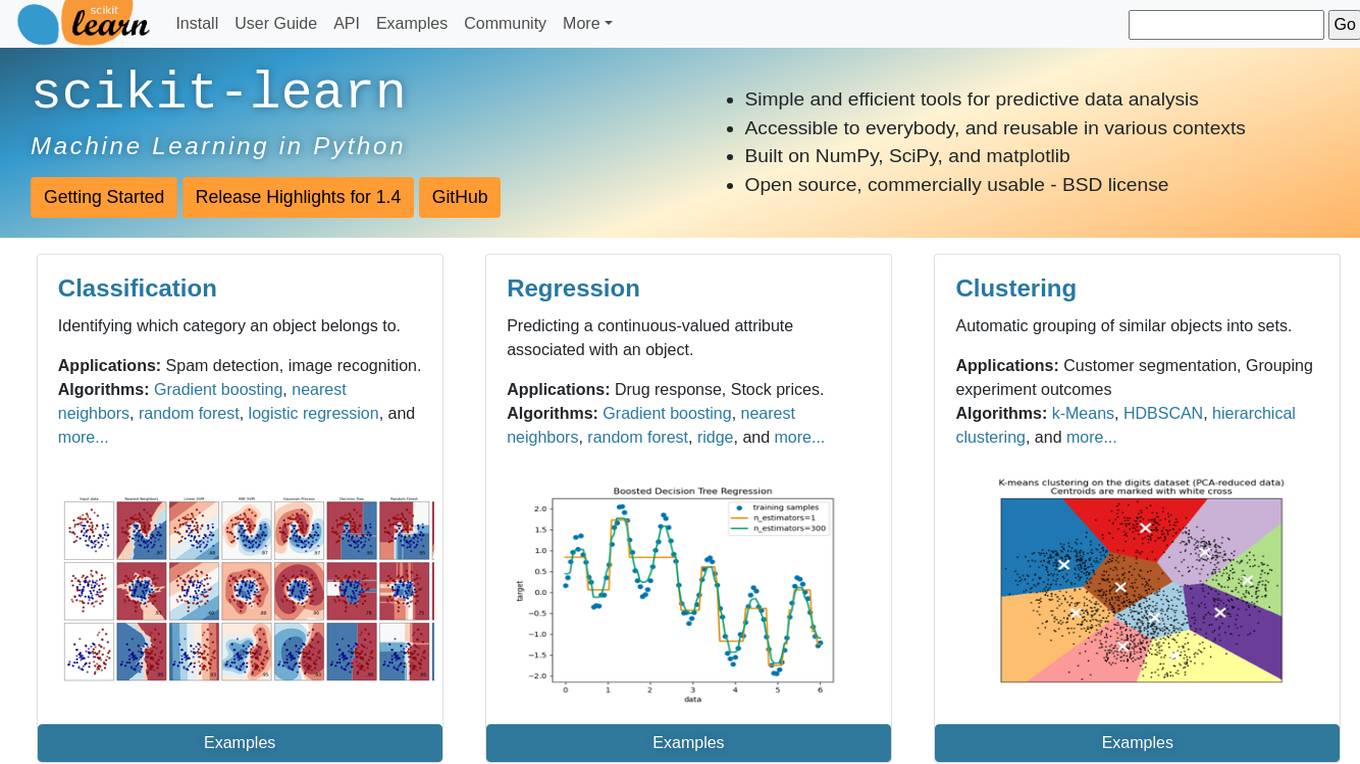
scikit-learn
Scikit-learn is a free software machine learning library for the Python programming language. It features various classification, regression and clustering algorithms including support vector machines, random forests, gradient boosting, k-means and DBSCAN, and is designed to interoperate with the Python numerical and scientific libraries NumPy and SciPy.
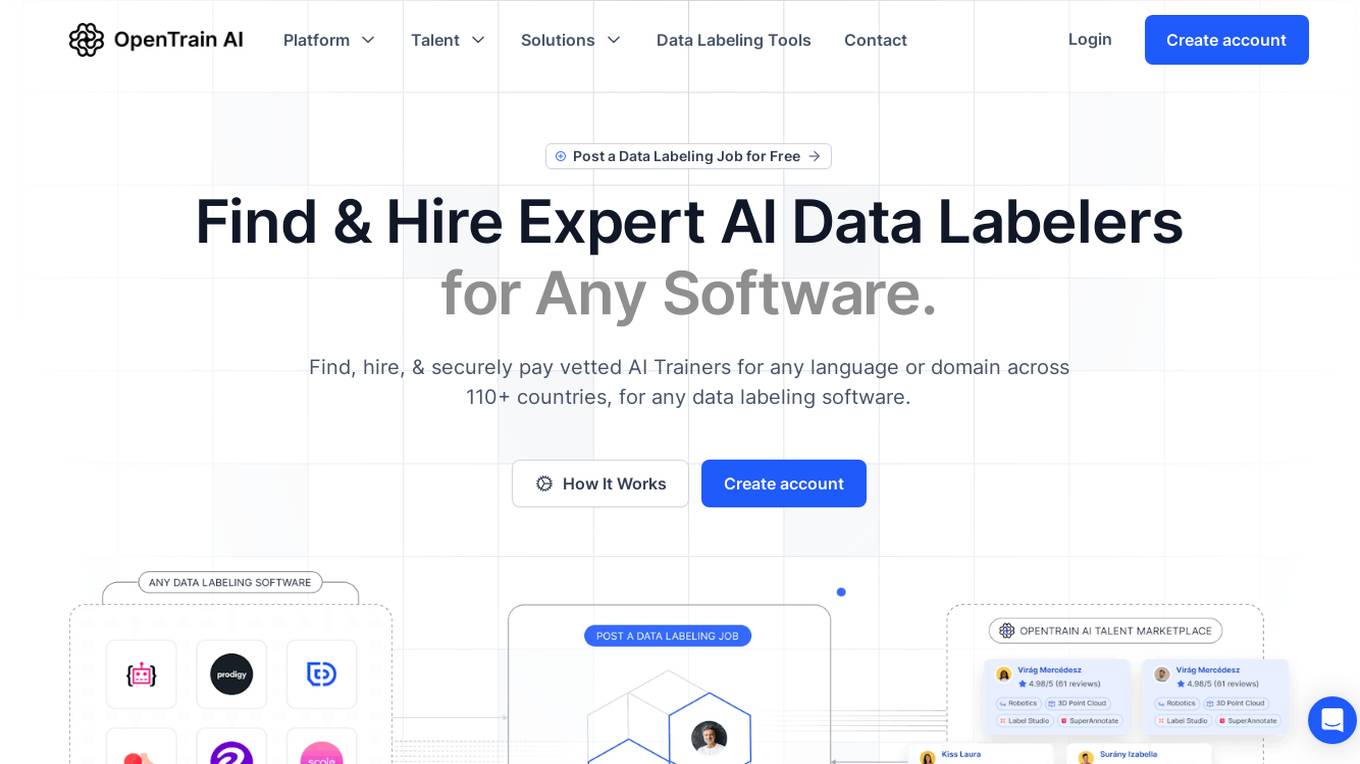
OpenTrain AI
OpenTrain AI is a data labeling marketplace that leverages artificial intelligence to streamline the process of labeling data for machine learning models. It provides a platform where users can crowdsource data labeling tasks to a global community of annotators, ensuring high-quality labeled datasets for training AI algorithms. With advanced AI algorithms and human-in-the-loop validation, OpenTrain AI offers efficient and accurate data labeling services for various industries such as autonomous vehicles, healthcare, and natural language processing.
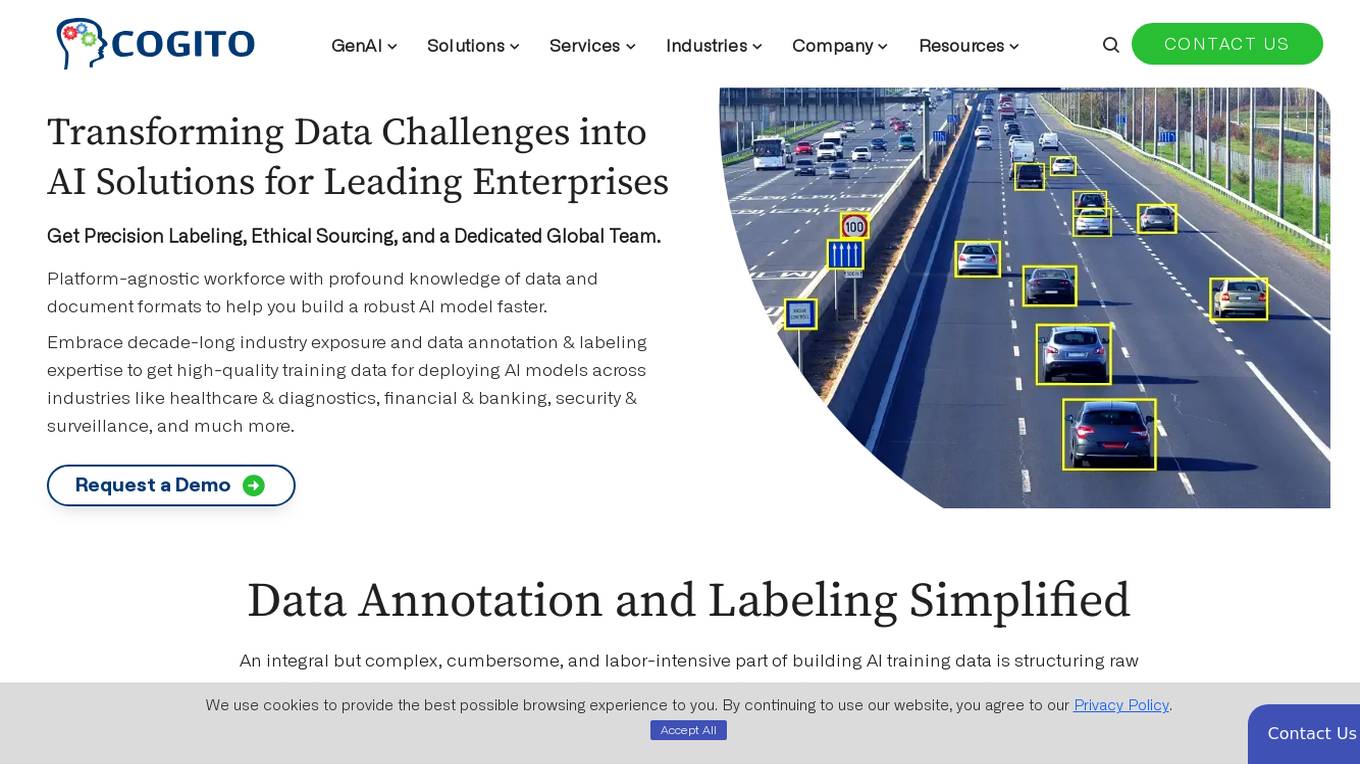
Cogitotech
Cogitotech is an AI tool that specializes in data annotation and labeling expertise. The platform offers a comprehensive suite of services tailored to meet training data needs for computer vision models and AI applications. With a decade-long industry exposure, Cogitotech provides high-quality training data for industries like healthcare, financial services, security, and more. The platform helps minimize biases in AI algorithms and ensures accurate and reliable training data solutions for deploying AI in real-life systems.
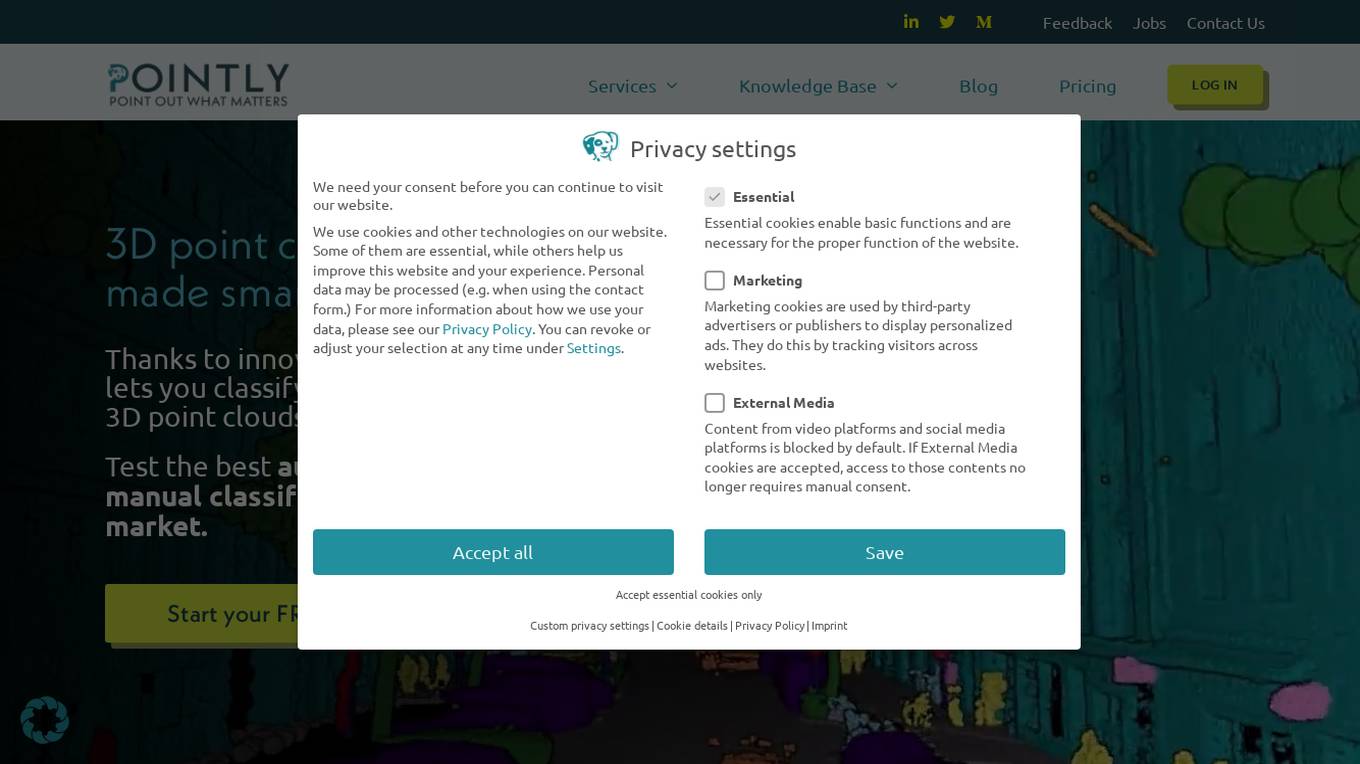
Pointly
Pointly is an intelligent, cloud-based B2B software solution that enables efficient automatic and advanced manual classification in 3D point clouds. It offers innovative AI techniques for fast and precise data classification and vectorization, transforming point cloud analysis into an enjoyable and efficient workflow. Pointly provides standard and custom classifiers, tools for classification and vectorization, API and on-premise classification options, collaboration features, secure cloud processing, and scalability for handling large-scale point cloud data.
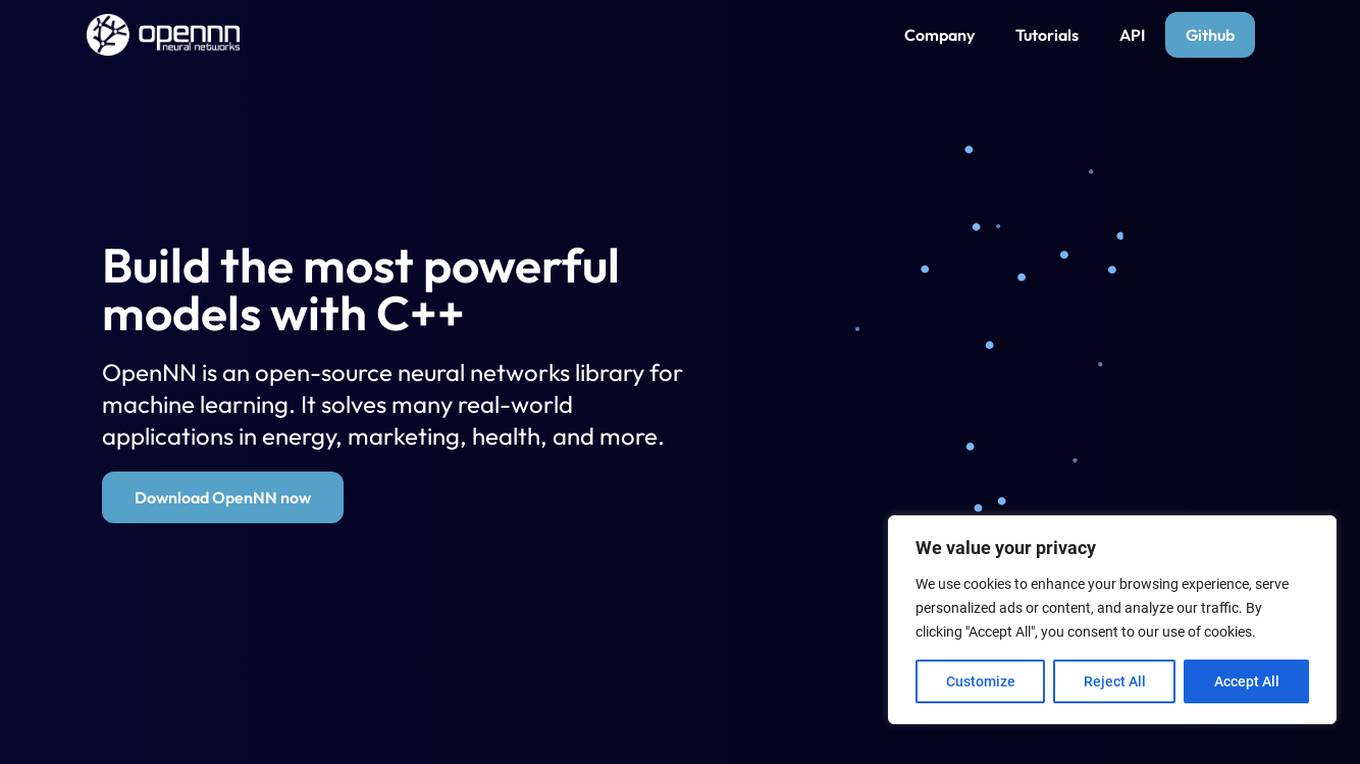
OpenNN
OpenNN is an open-source neural networks library for machine learning that solves real-world applications in energy, marketing, health, and more. It offers sophisticated algorithms for regression, classification, forecasting, and association tasks. OpenNN provides higher capacity for managing bigger data sets and faster training compared to TensorFlow and PyTorch. It is being developed by Artelnics, a consulting company specialized in artificial intelligence and big data. Neural Designer, a software tool developed from OpenNN, helps build neural network models without programming.

Electe
Electe is an AI-powered platform that empowers businesses to leverage the potential of artificial intelligence for data analysis and insights. With its intuitive interface and advanced AI algorithms, Electe enables users to extract valuable insights from their data, visualize data through intuitive graphs and customizable dashboards, generate personalized notes based on customer order analysis, monitor and compare competitor performance, and automate data extraction and classification using machine learning techniques. The platform also offers features like Q&A Document interaction, advanced presentations generation, daily email reports, and mobile app access. Electe is designed to cater to businesses of all sizes, providing scalable plans with essential functionalities, advanced analysis tools, and premium support.
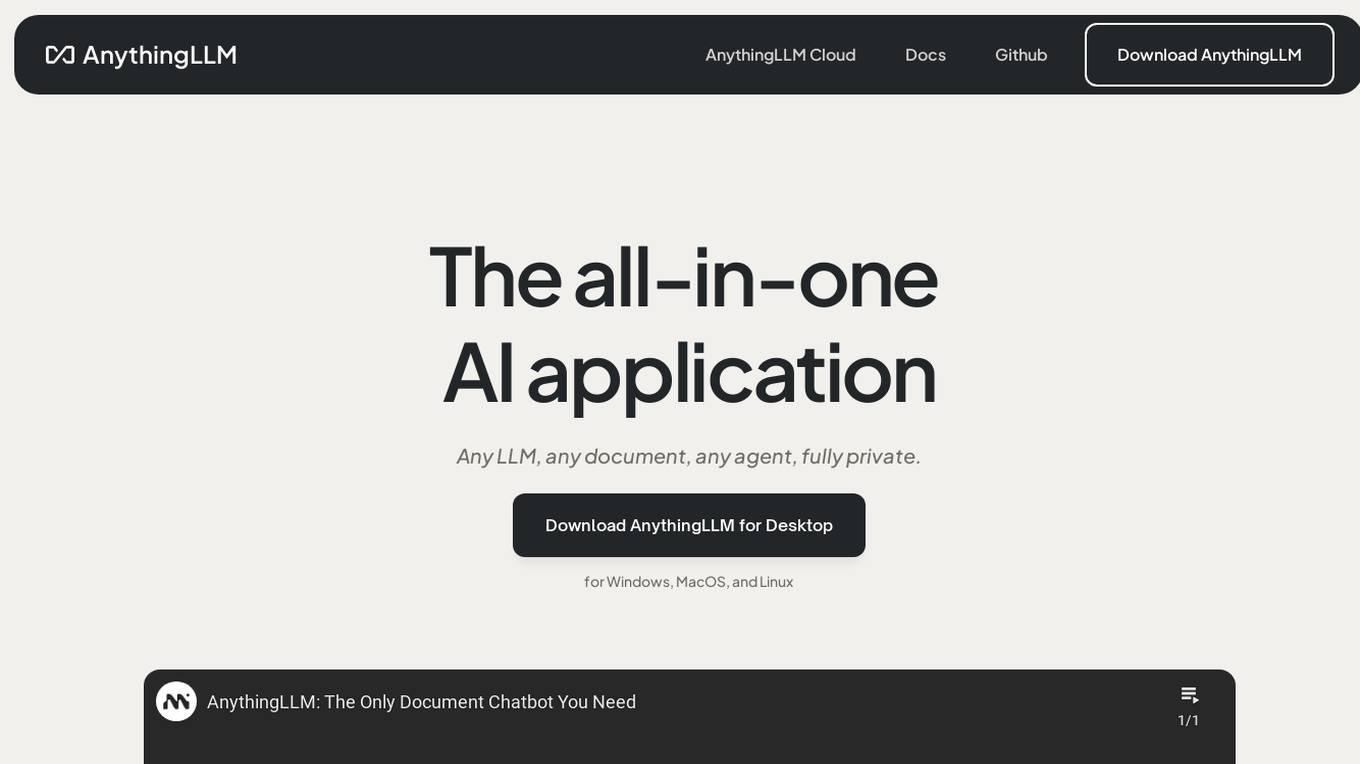
AnythingLLM
AnythingLLM is an all-in-one AI application designed for everyone. It offers a suite of tools for working with LLM (Large Language Models), documents, and agents in a fully private environment. Users can install AnythingLLM on their desktop for Windows, MacOS, and Linux, enabling flexible one-click installation and secure, fully private operation without internet connectivity. The application supports custom models, including enterprise models like GPT-4, custom fine-tuned models, and open-source models like Llama and Mistral. AnythingLLM allows users to work with various document formats, such as PDFs and word documents, providing tailored solutions with locally running defaults for privacy.
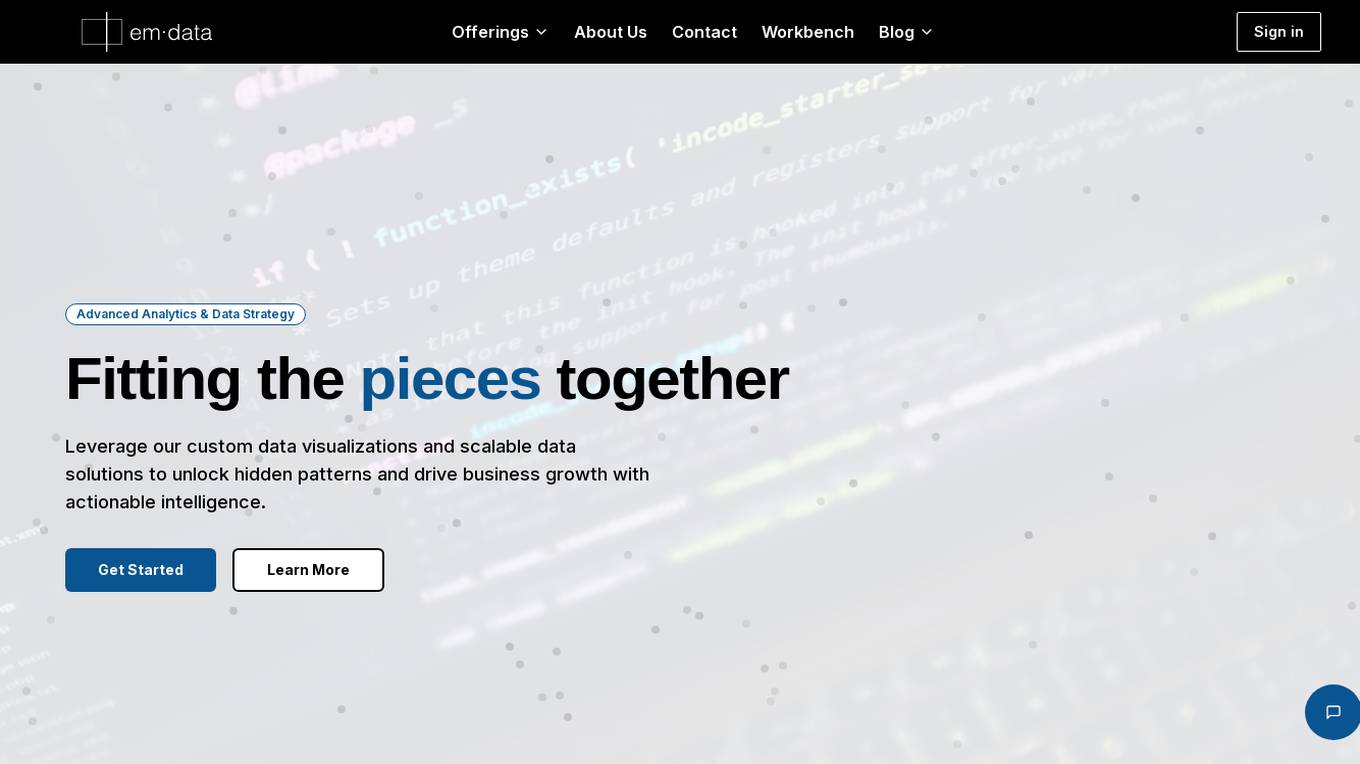
emdata.ai
emdata.ai is an advanced analytics and data strategy platform that offers a comprehensive portfolio of tools for leveraging data to drive business growth. The platform provides custom data visualizations, scalable data solutions, and AI-driven classification to uncover hidden patterns and insights. With features like deep financial analysis, competitive intelligence analysis, real-time data processing, and predictive analytics, emdata.ai empowers users to make informed decisions and optimize their operations. The platform also offers customized training programs to enhance users' data skills and knowledge.
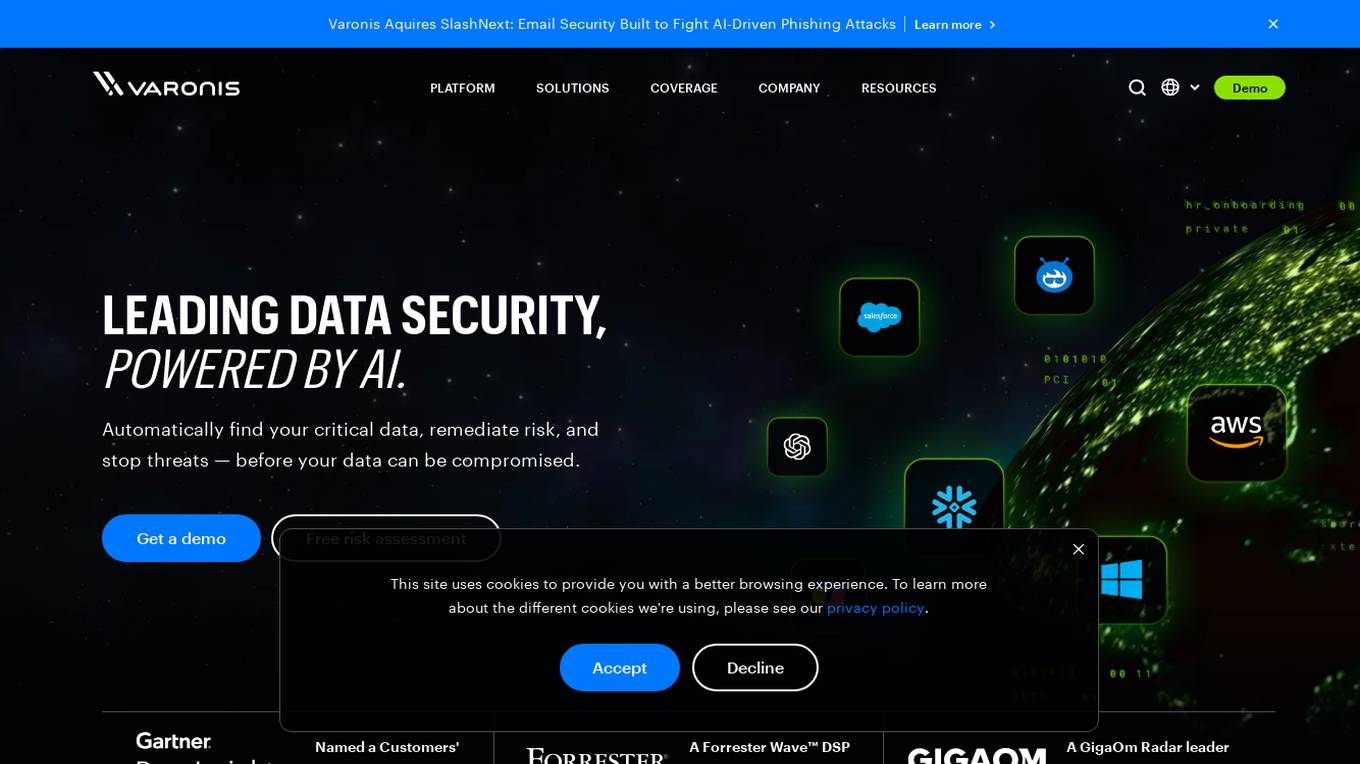
Varonis
Varonis is an AI-powered data security platform that provides end-to-end data security solutions for organizations. It offers automated outcomes to reduce risk, enforce policies, and stop active threats. Varonis helps in data discovery & classification, data security posture management, data-centric UEBA, data access governance, and data loss prevention. The platform is designed to protect critical data across multi-cloud, SaaS, hybrid, and AI environments.
9 - Open Source AI Tools
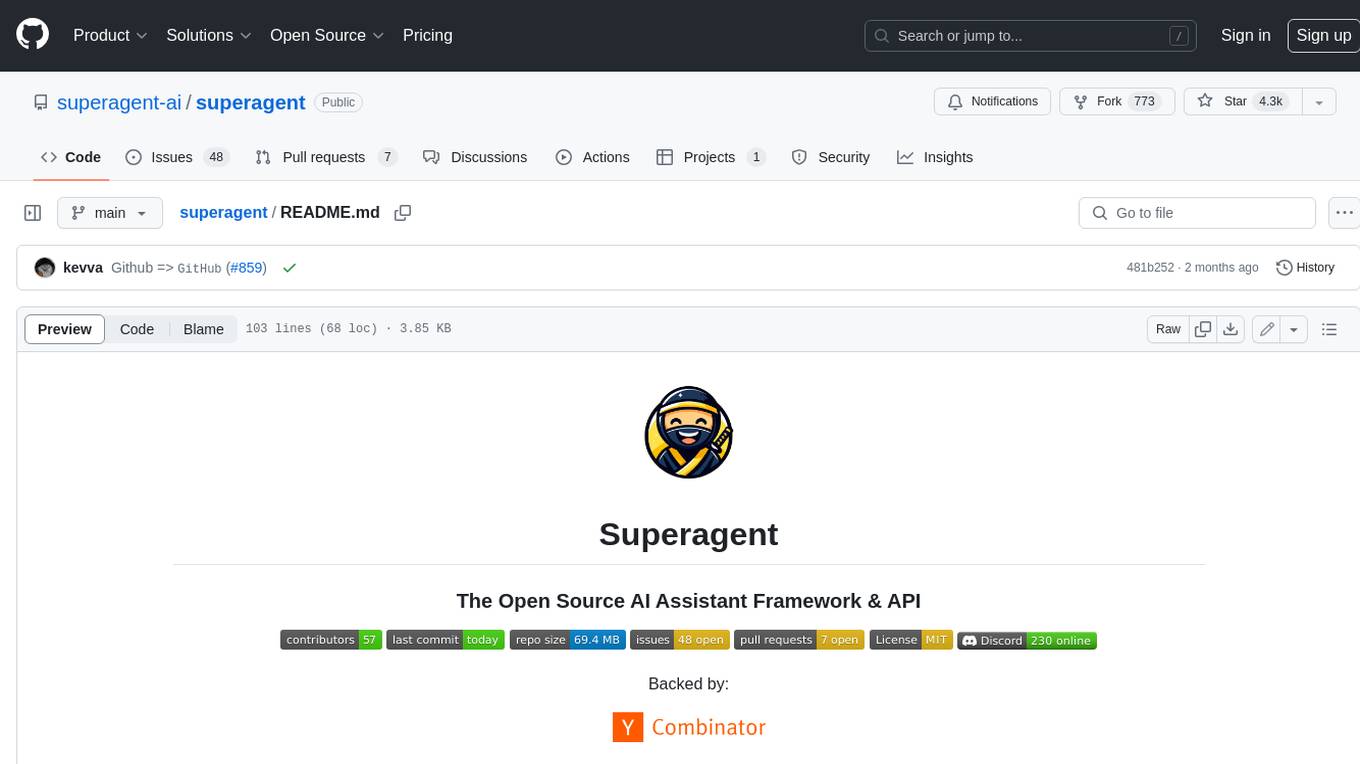
superagent
Superagent is an open-source AI assistant framework and API that allows developers to add powerful AI assistants to their applications. These assistants use large language models (LLMs), retrieval augmented generation (RAG), and generative AI to help users with a variety of tasks, including question answering, chatbot development, content generation, data aggregation, and workflow automation. Superagent is backed by Y Combinator and is part of YC W24.
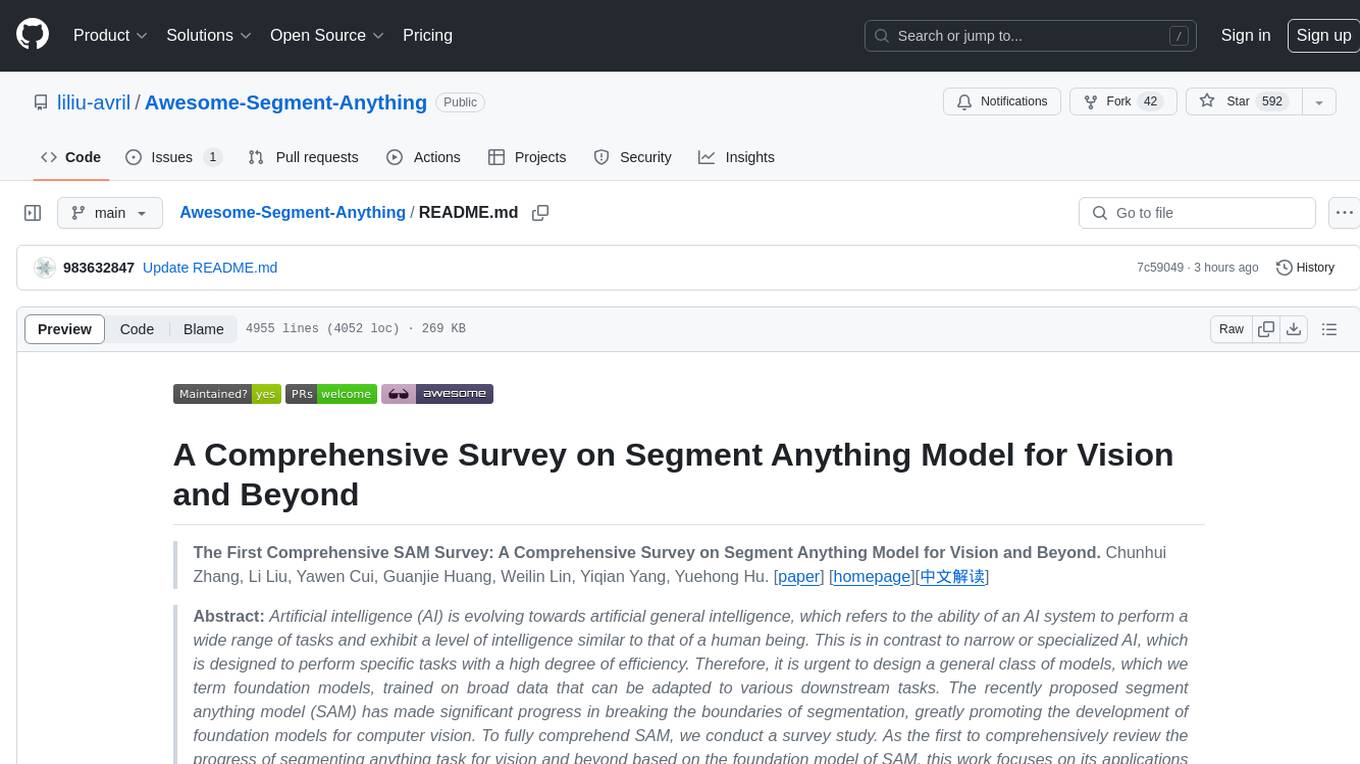
Awesome-Segment-Anything
Awesome-Segment-Anything is a powerful tool for segmenting and extracting information from various types of data. It provides a user-friendly interface to easily define segmentation rules and apply them to text, images, and other data formats. The tool supports both supervised and unsupervised segmentation methods, allowing users to customize the segmentation process based on their specific needs. With its versatile functionality and intuitive design, Awesome-Segment-Anything is ideal for data analysts, researchers, content creators, and anyone looking to efficiently extract valuable insights from complex datasets.
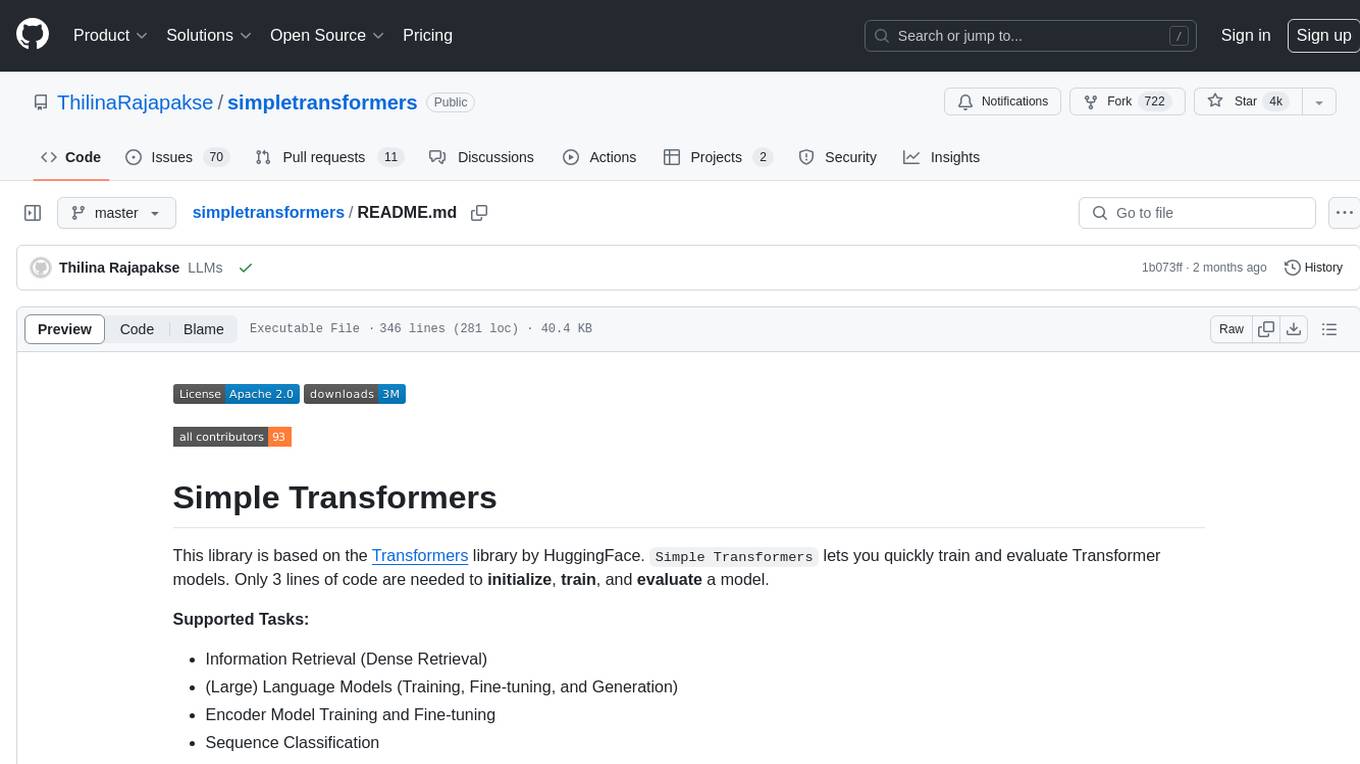
simpletransformers
Simple Transformers is a library based on the Transformers library by HuggingFace, allowing users to quickly train and evaluate Transformer models with only 3 lines of code. It supports various tasks such as Information Retrieval, Language Models, Encoder Model Training, Sequence Classification, Token Classification, Question Answering, Language Generation, T5 Model, Seq2Seq Tasks, Multi-Modal Classification, and Conversational AI.
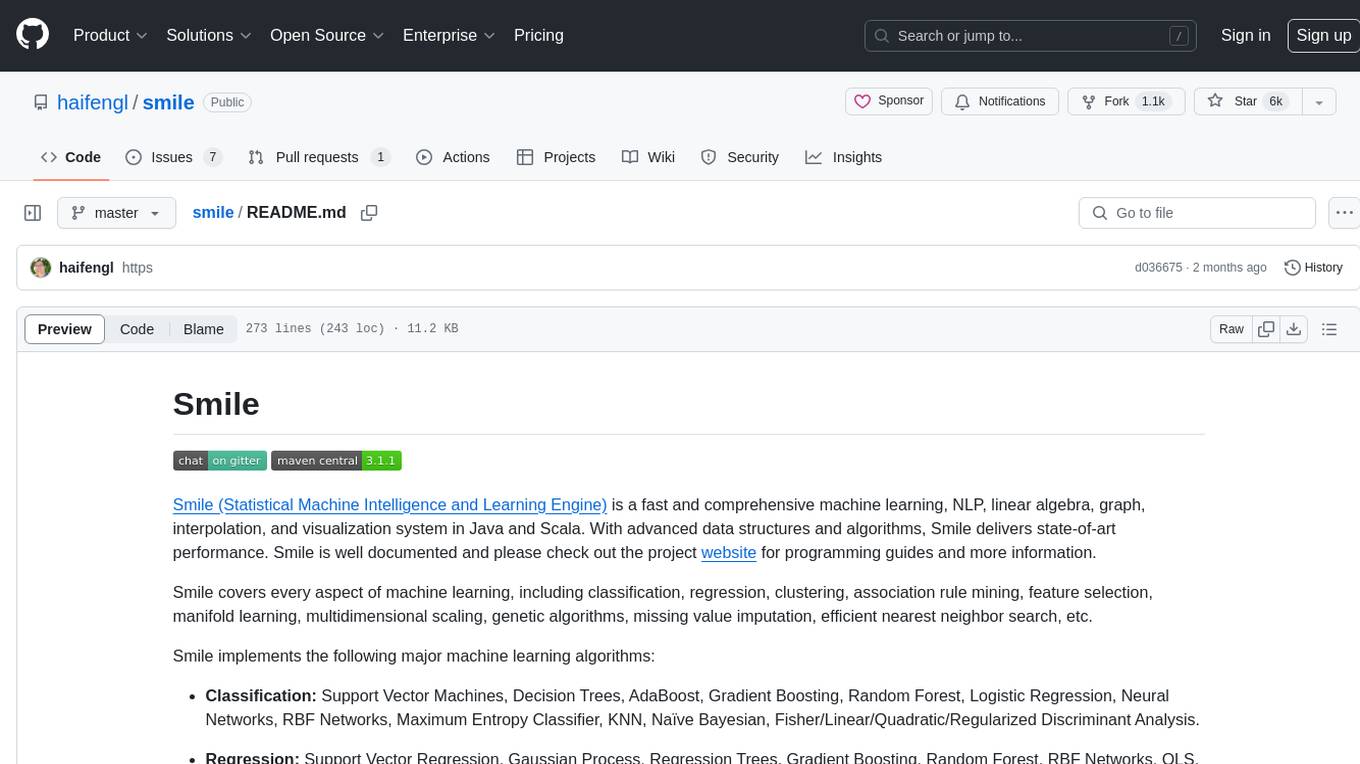
smile
Smile (Statistical Machine Intelligence and Learning Engine) is a comprehensive machine learning, NLP, linear algebra, graph, interpolation, and visualization system in Java and Scala. It covers every aspect of machine learning, including classification, regression, clustering, association rule mining, feature selection, manifold learning, multidimensional scaling, genetic algorithms, missing value imputation, efficient nearest neighbor search, etc. Smile implements major machine learning algorithms and provides interactive shells for Java, Scala, and Kotlin. It supports model serialization, data visualization using SmilePlot and declarative approach, and offers a gallery showcasing various algorithms and visualizations.
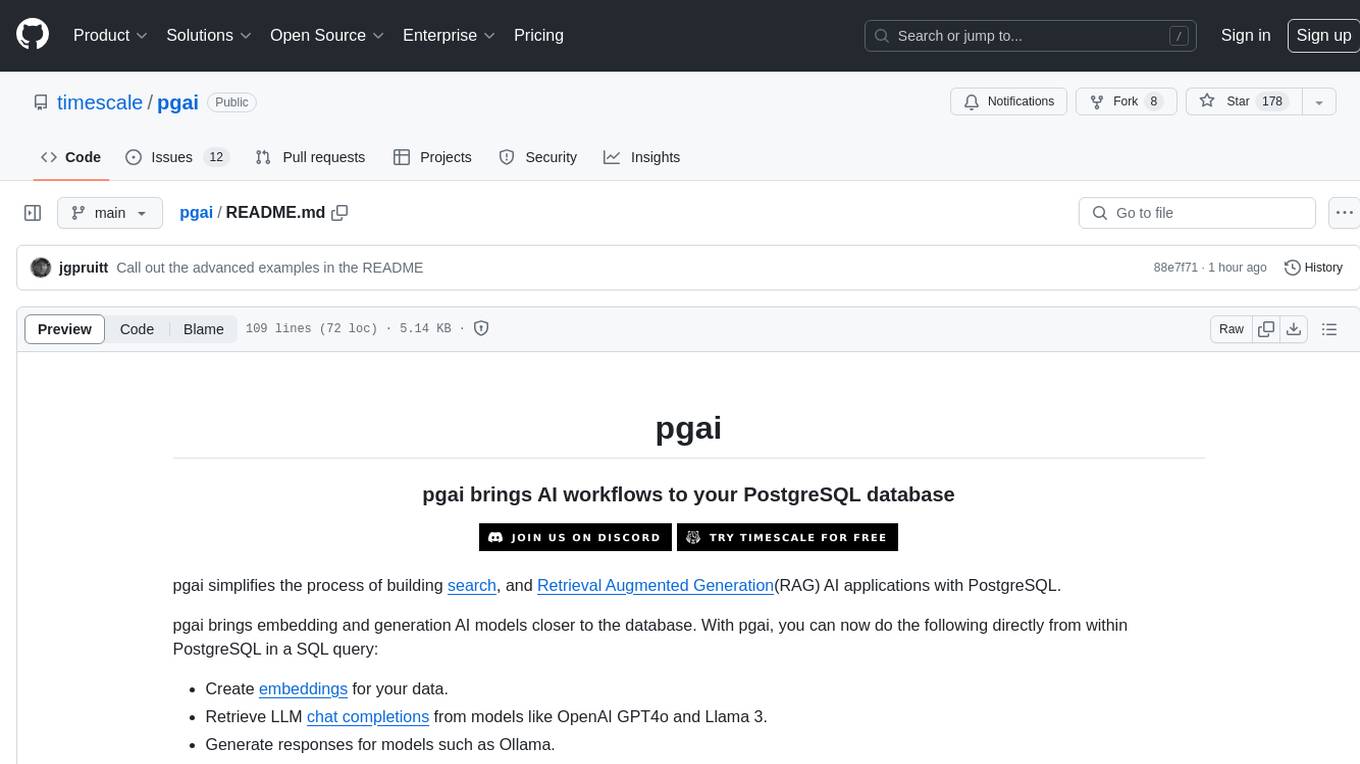
pgai
pgai simplifies the process of building search and Retrieval Augmented Generation (RAG) AI applications with PostgreSQL. It brings embedding and generation AI models closer to the database, allowing users to create embeddings, retrieve LLM chat completions, reason over data for classification, summarization, and data enrichment directly from within PostgreSQL in a SQL query. The tool requires an OpenAI API key and a PostgreSQL client to enable AI functionality in the database. Users can install pgai from source, run it in a pre-built Docker container, or enable it in a Timescale Cloud service. The tool provides functions to handle API keys using psql or Python, and offers various AI functionalities like tokenizing, detokenizing, embedding, chat completion, and content moderation.
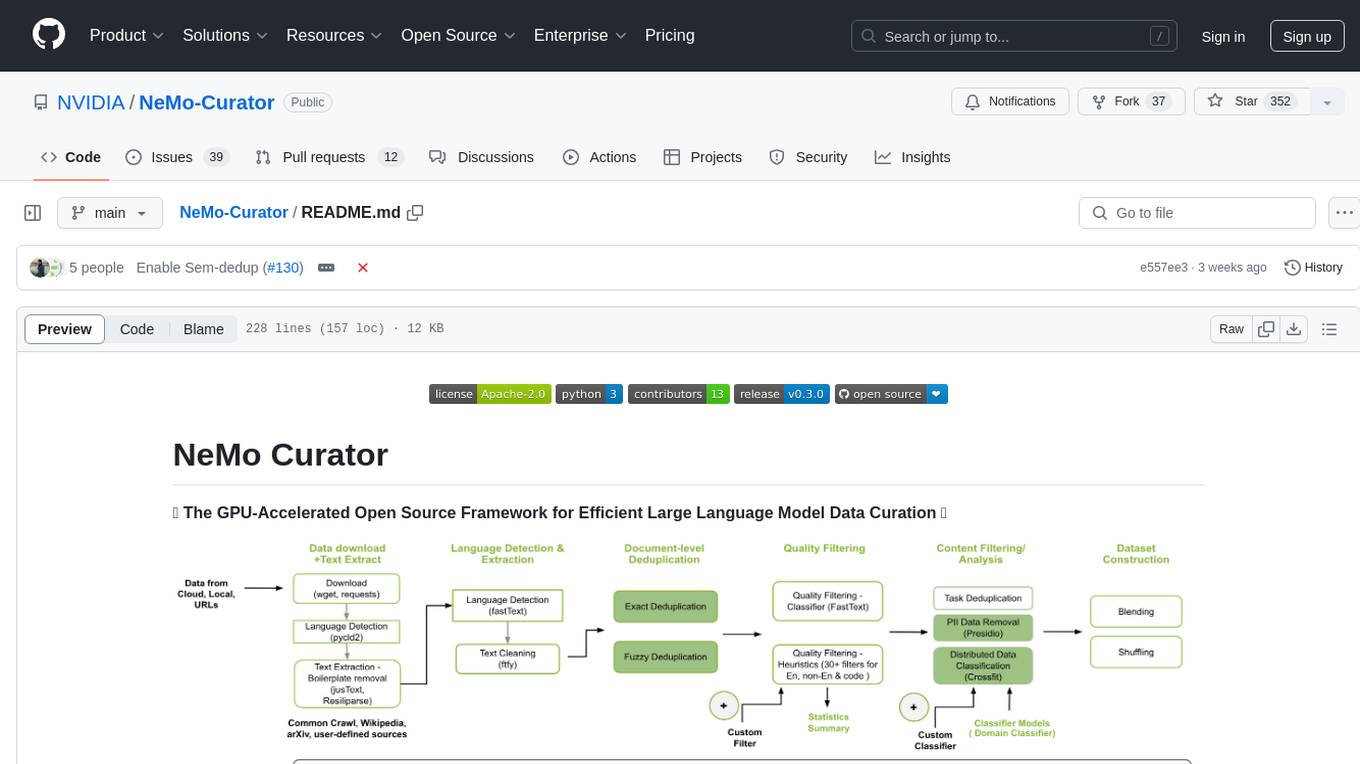
NeMo-Curator
NeMo Curator is a GPU-accelerated open-source framework designed for efficient large language model data curation. It provides scalable dataset preparation for tasks like foundation model pretraining, domain-adaptive pretraining, supervised fine-tuning, and parameter-efficient fine-tuning. The library leverages GPUs with Dask and RAPIDS to accelerate data curation, offering customizable and modular interfaces for pipeline expansion and model convergence. Key features include data download, text extraction, quality filtering, deduplication, downstream-task decontamination, distributed data classification, and PII redaction. NeMo Curator is suitable for curating high-quality datasets for large language model training.
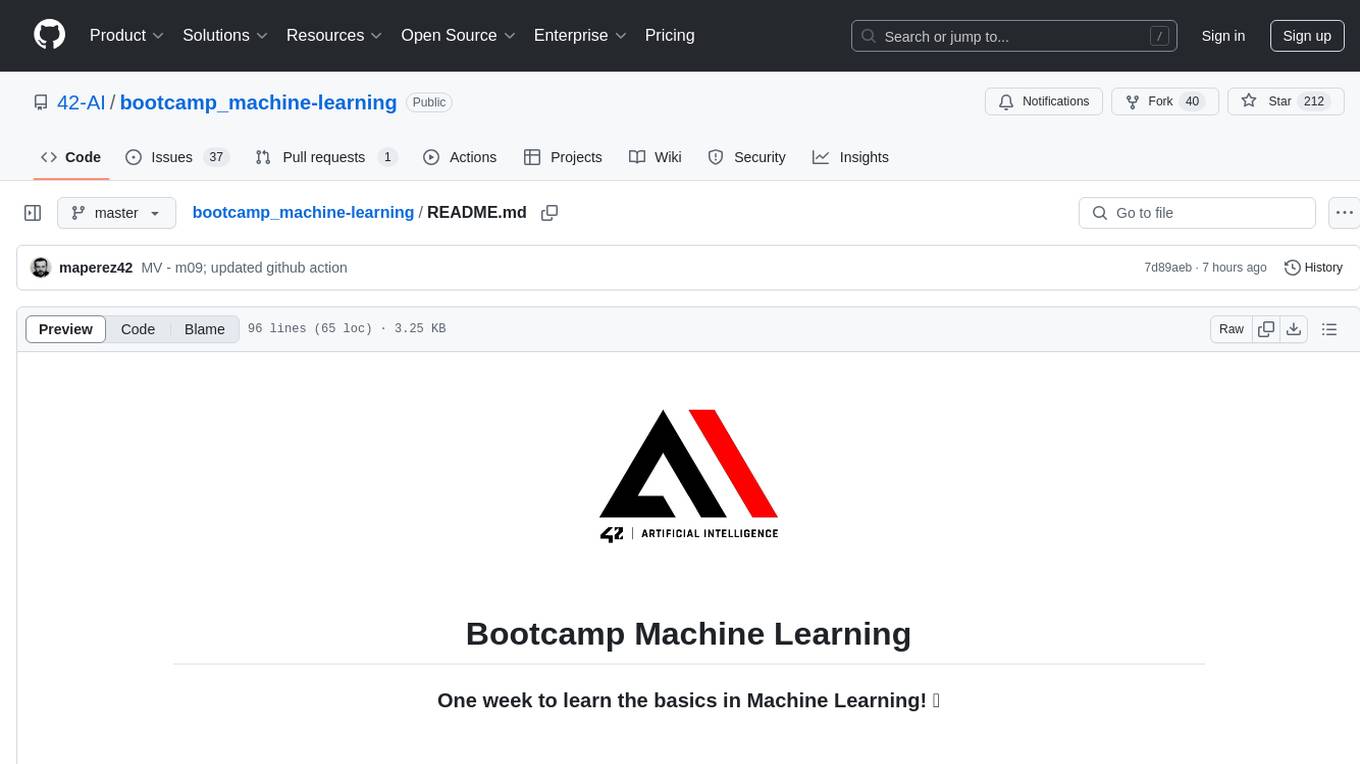
bootcamp_machine-learning
Bootcamp Machine Learning is a one-week program designed by 42 AI to teach the basics of Machine Learning. The curriculum covers topics such as linear algebra, statistics, regression, classification, and regularization. Participants will learn concepts like gradient descent, hypothesis modeling, overfitting detection, logistic regression, and more. The bootcamp is ideal for individuals with prior knowledge of Python who are interested in diving into the field of artificial intelligence.
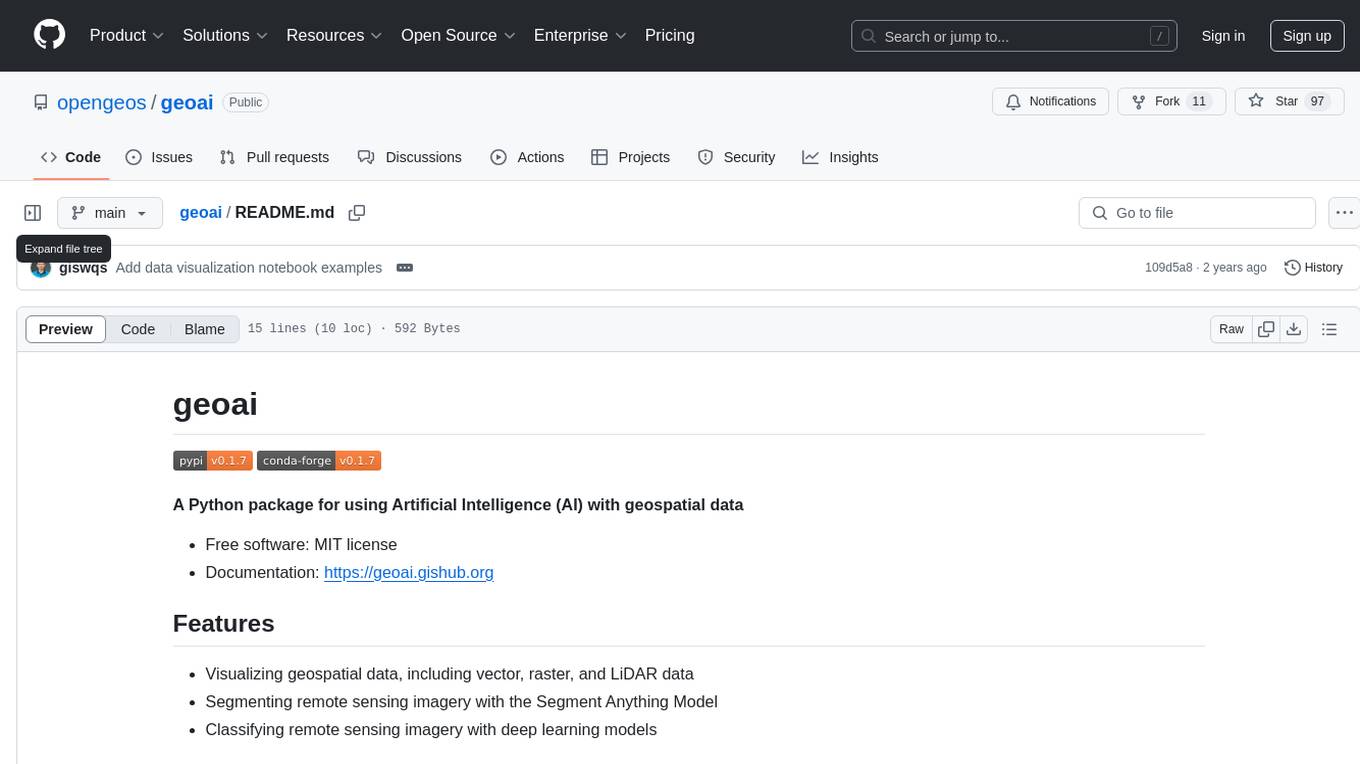
geoai
geoai is a Python package designed for utilizing Artificial Intelligence (AI) in the context of geospatial data. It allows users to visualize various types of geospatial data such as vector, raster, and LiDAR data. Additionally, the package offers functionalities for segmenting remote sensing imagery using the Segment Anything Model and classifying remote sensing imagery with deep learning models. With a focus on geospatial AI applications, geoai provides a versatile tool for processing and analyzing spatial data with the power of AI.
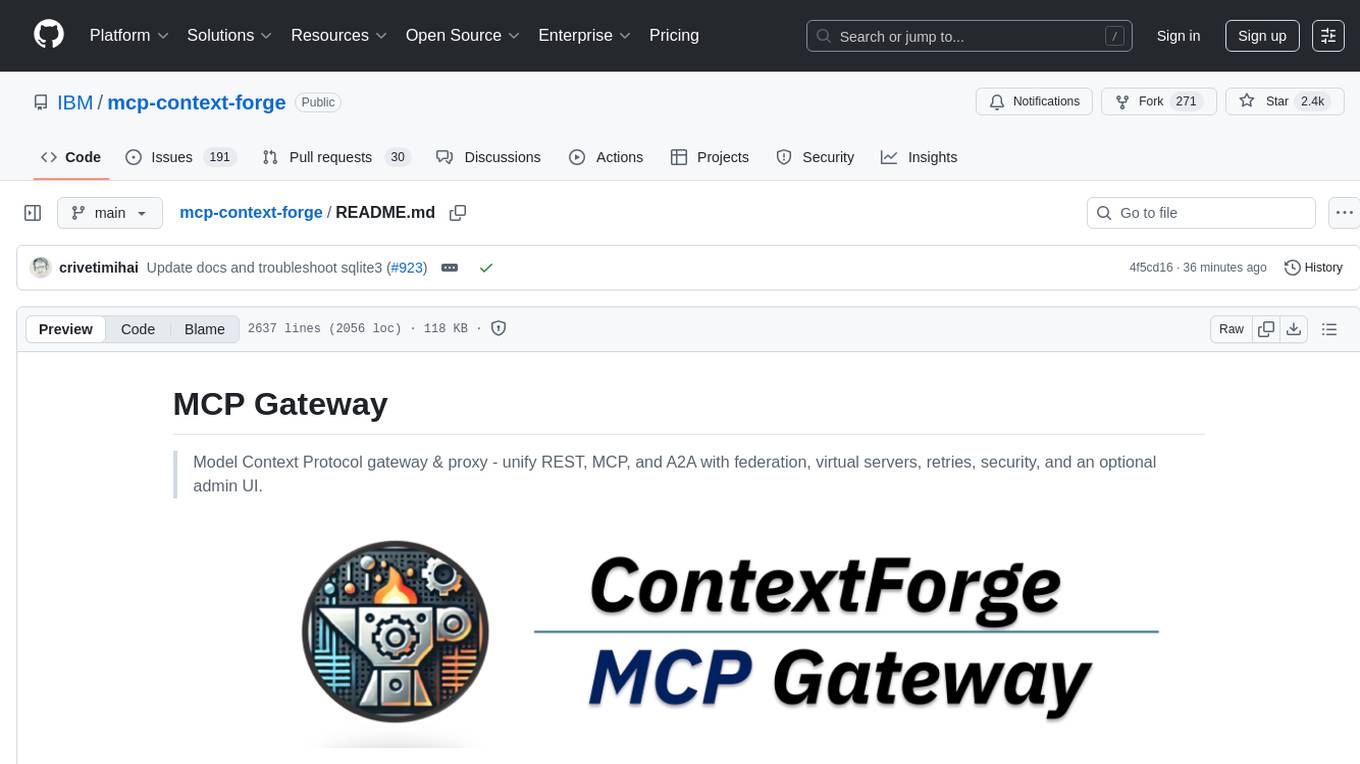
mcp-context-forge
MCP Context Forge is a powerful tool for generating context-aware data for machine learning models. It provides functionalities to create diverse datasets with contextual information, enhancing the performance of AI algorithms. The tool supports various data formats and allows users to customize the context generation process easily. With MCP Context Forge, users can efficiently prepare training data for tasks requiring contextual understanding, such as sentiment analysis, recommendation systems, and natural language processing.
20 - OpenAI Gpts
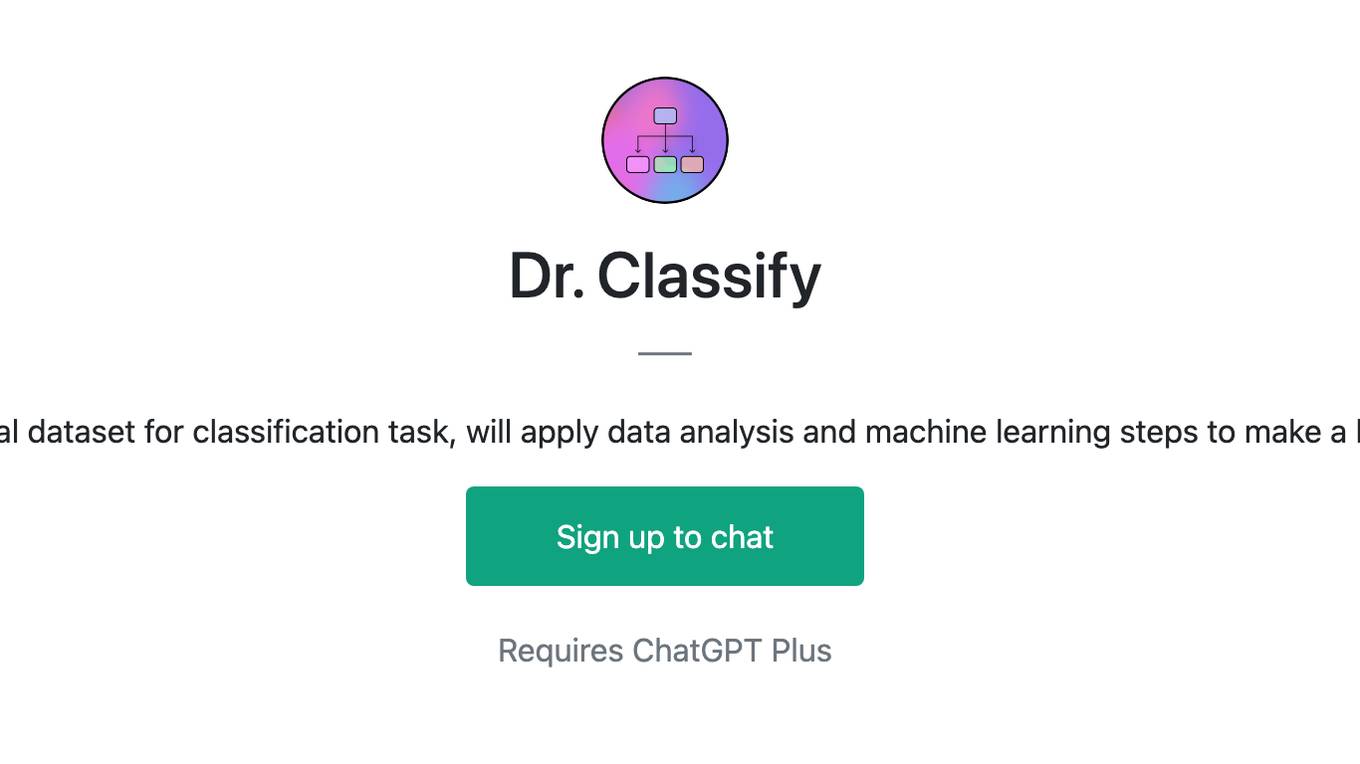
Dr. Classify
Just upload a numerical dataset for classification task, will apply data analysis and machine learning steps to make a best model possible.
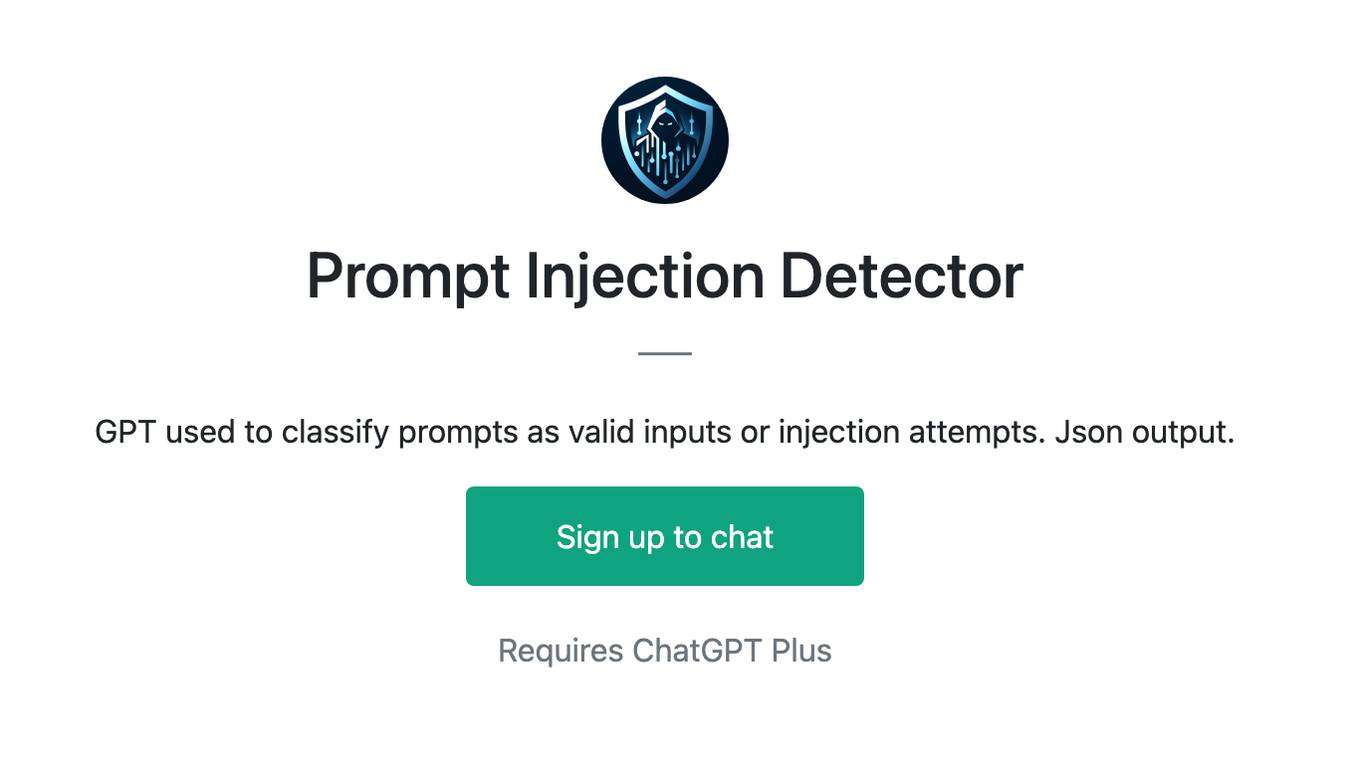
Prompt Injection Detector
GPT used to classify prompts as valid inputs or injection attempts. Json output.
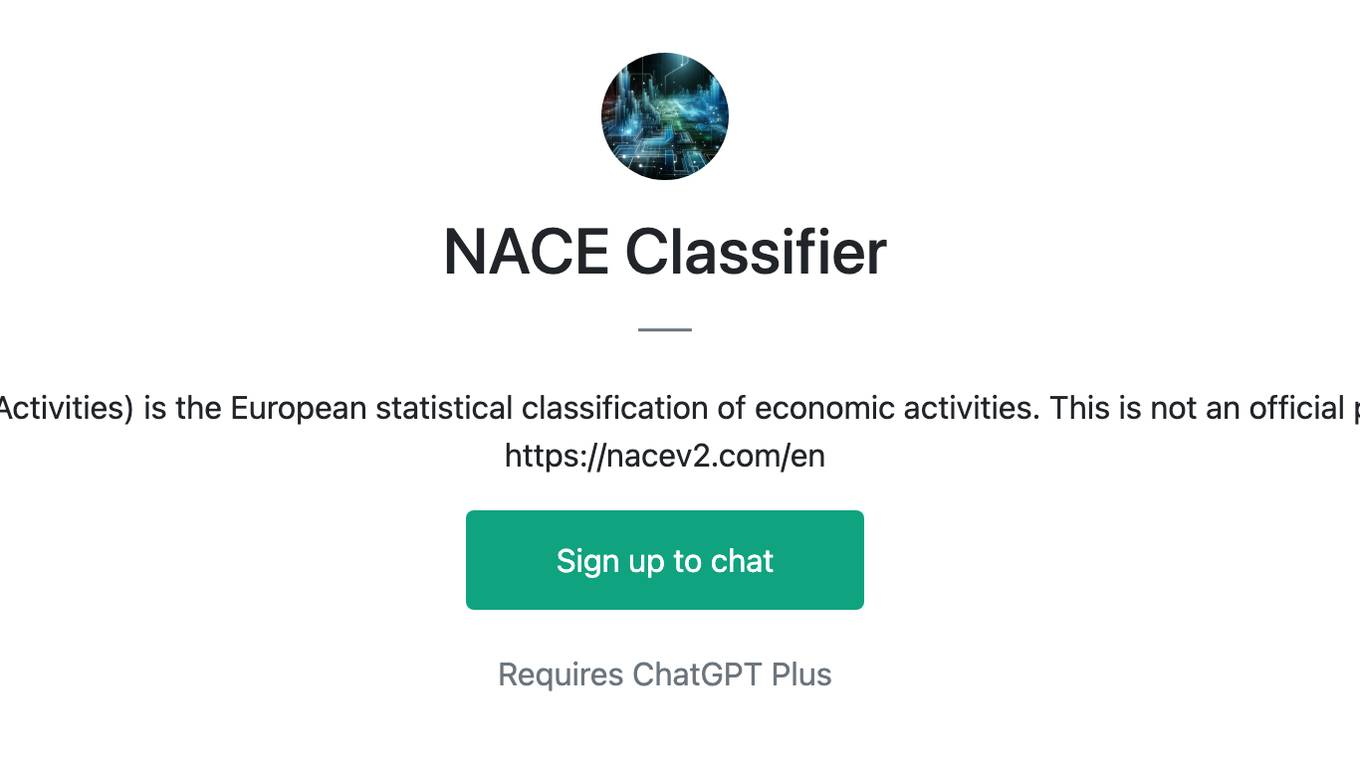
NACE Classifier
NACE (Nomenclature of Economic Activities) is the European statistical classification of economic activities. This is not an official product. Official information here: https://nacev2.com/en

Categorize your perfumes
Analyzes and categorizes perfume data from Excel, or lists. Upload a file with your perfume names or just the names of your perfumes and this GPT will help you organize the information.
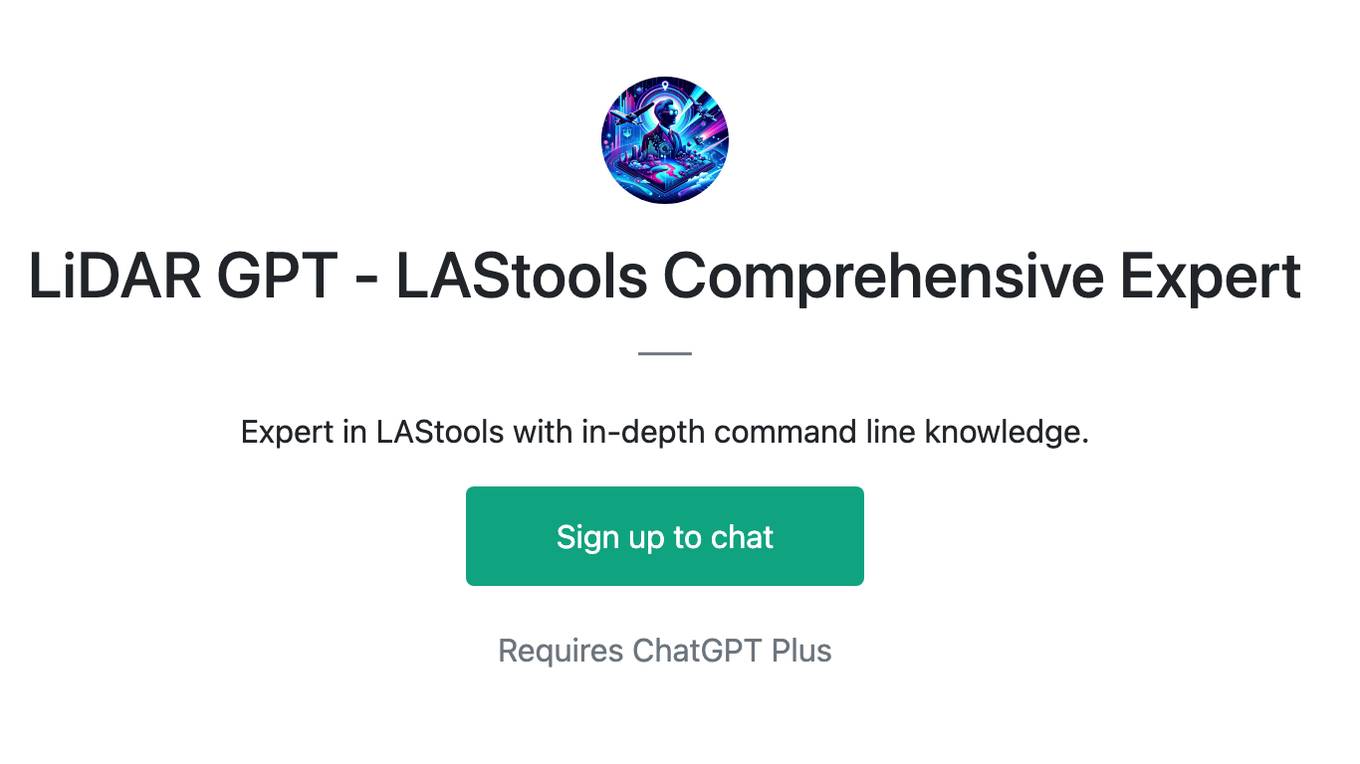
LiDAR GPT - LAStools Comprehensive Expert
Expert in LAStools with in-depth command line knowledge.
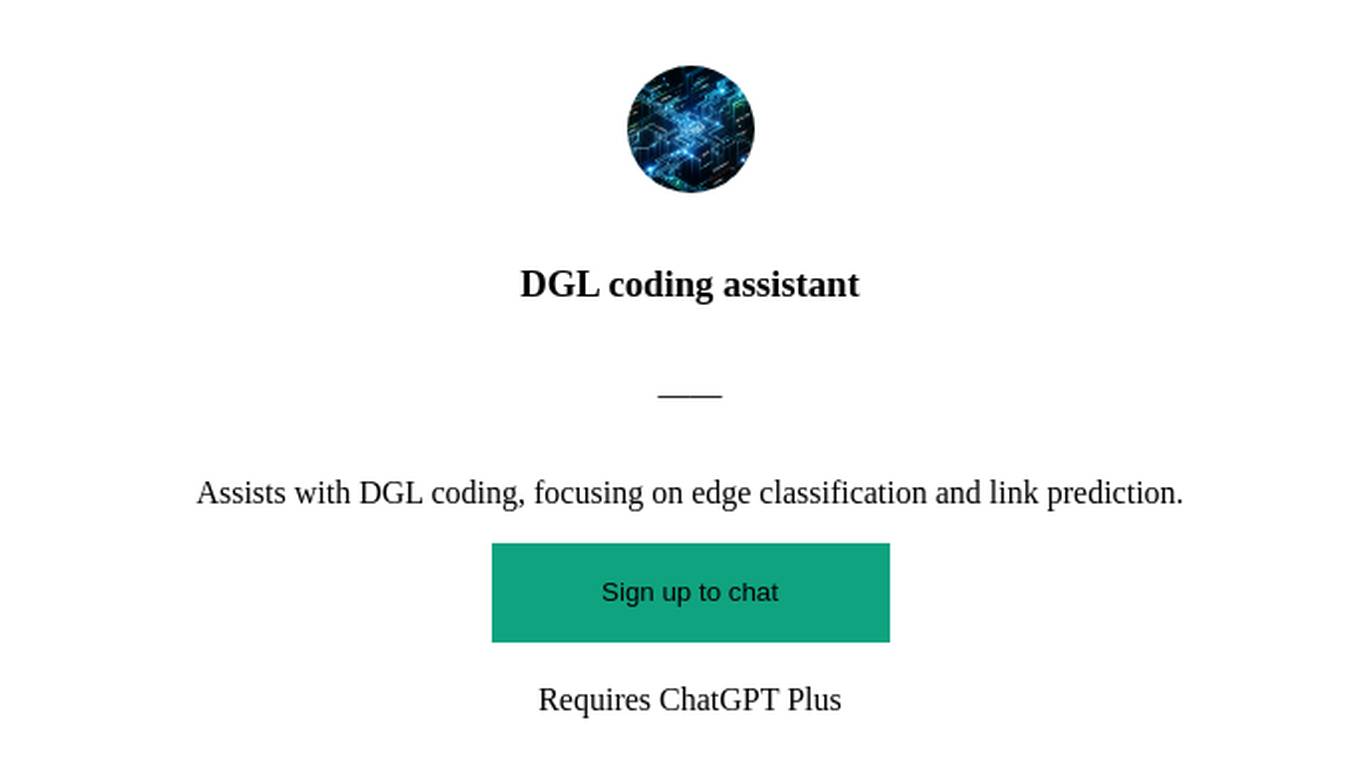
DGL coding assistant
Assists with DGL coding, focusing on edge classification and link prediction.
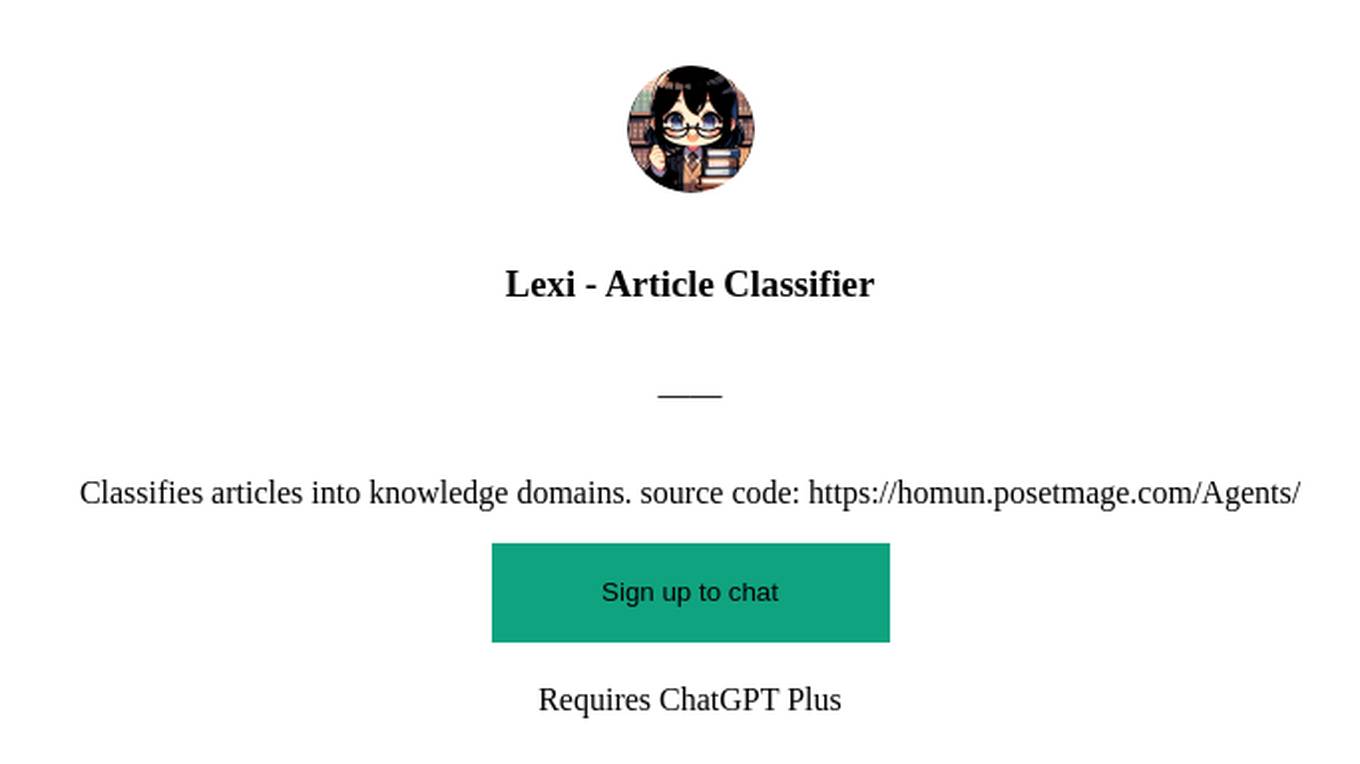
Lexi - Article Classifier
Classifies articles into knowledge domains. source code: https://homun.posetmage.com/Agents/
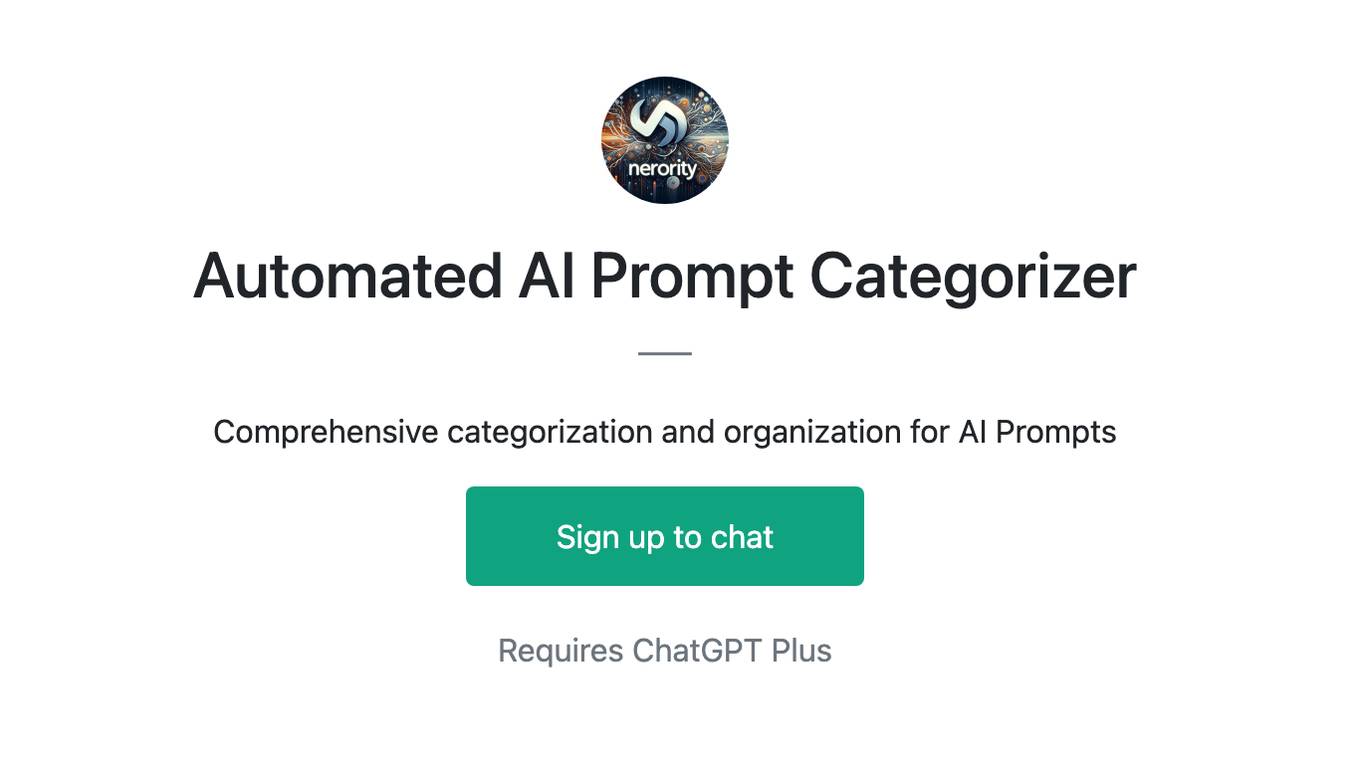
Automated AI Prompt Categorizer
Comprehensive categorization and organization for AI Prompts
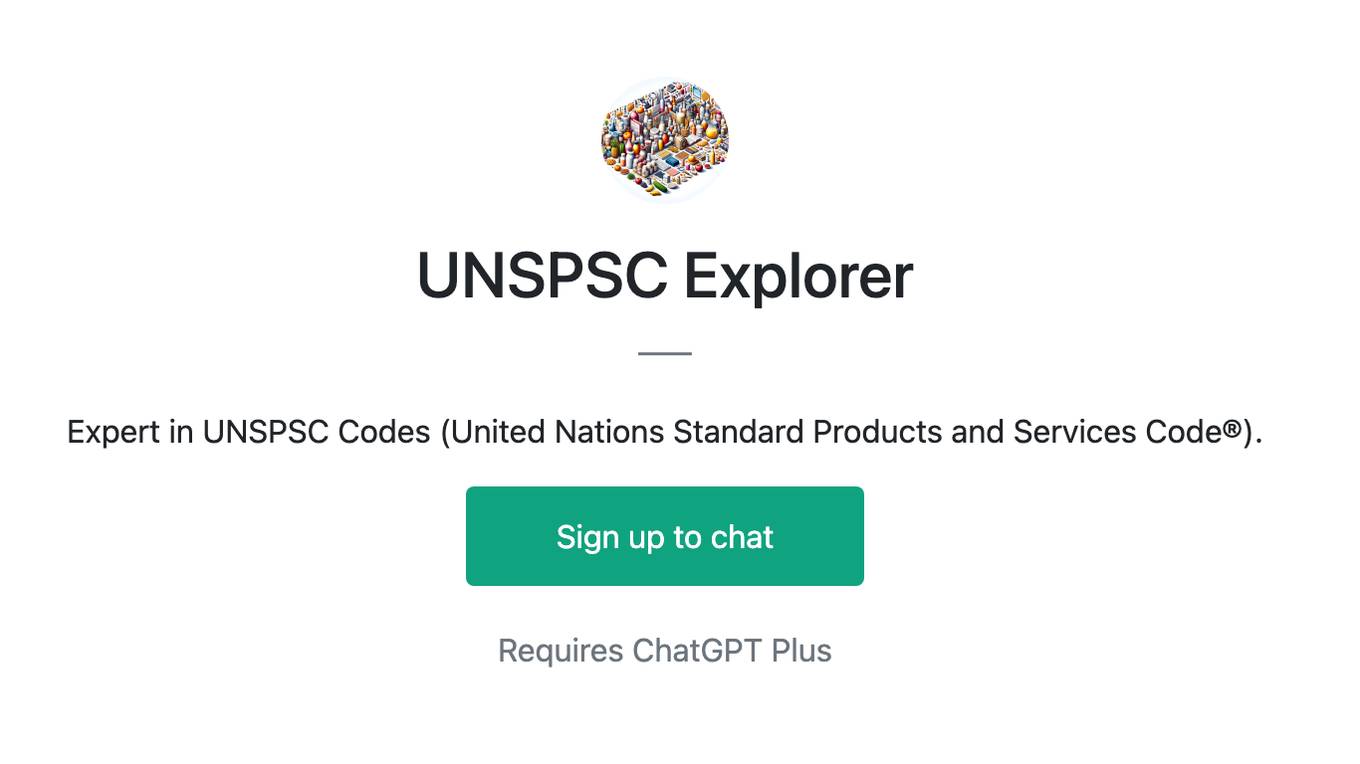
UNSPSC Explorer
Expert in UNSPSC Codes (United Nations Standard Products and Services Code®).
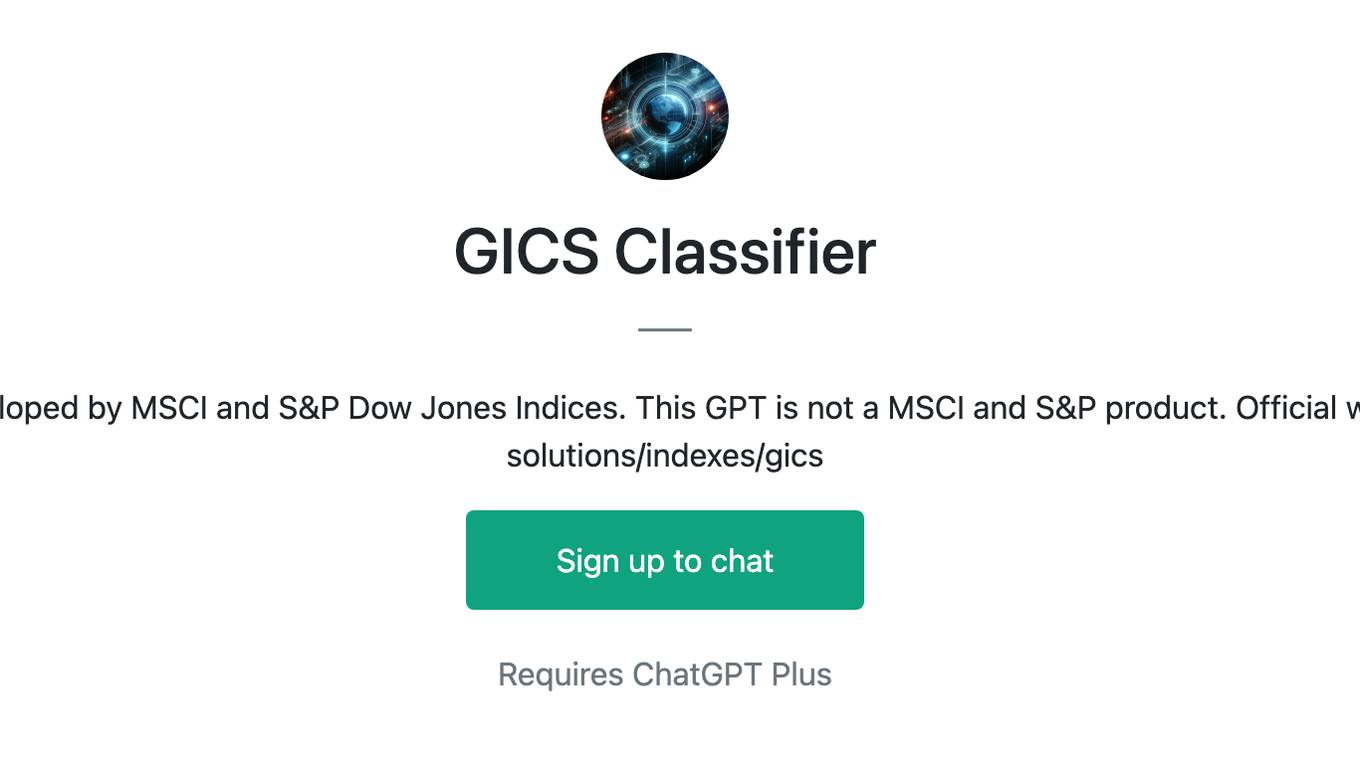
GICS Classifier
GICS is a classification standard developed by MSCI and S&P Dow Jones Indices. This GPT is not a MSCI and S&P product. Official website : https://www.msci.com/our-solutions/indexes/gics
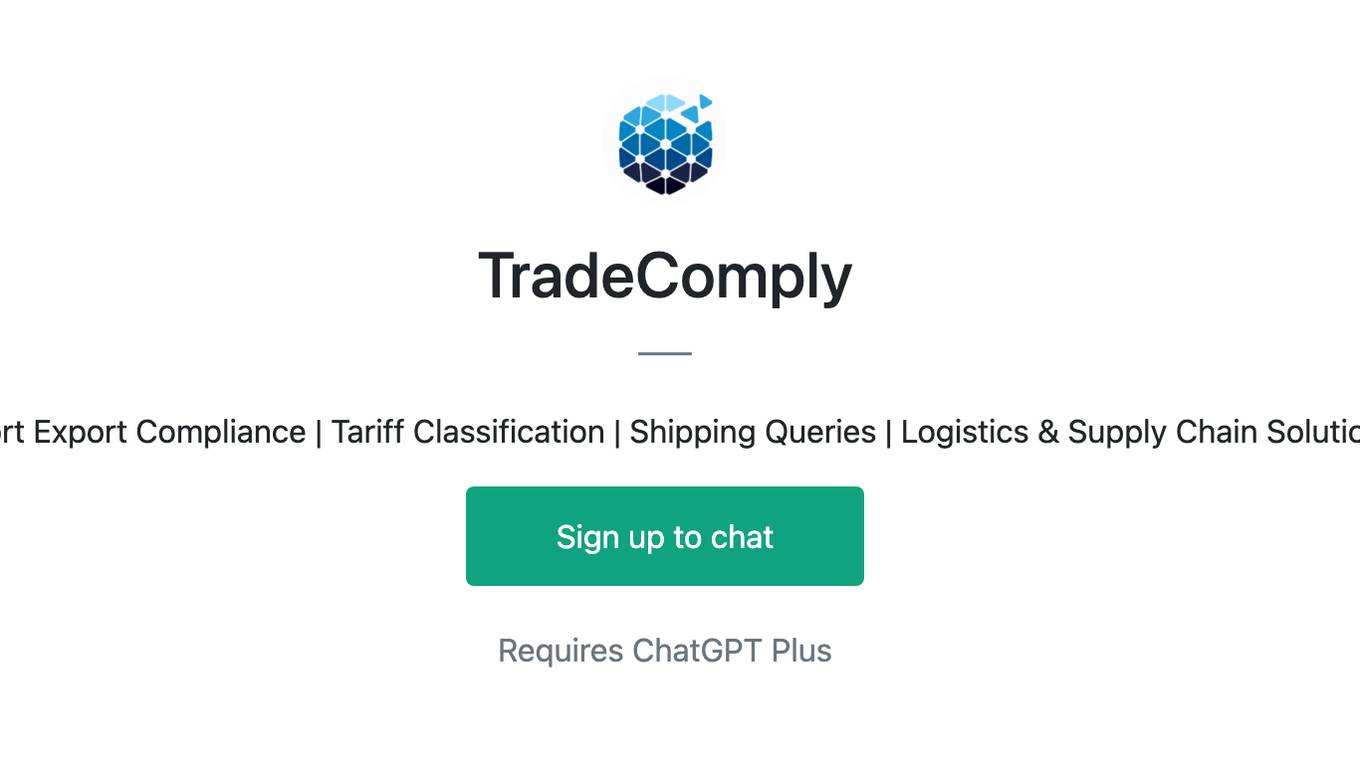
TradeComply
Import Export Compliance | Tariff Classification | Shipping Queries | Logistics & Supply Chain Solutions
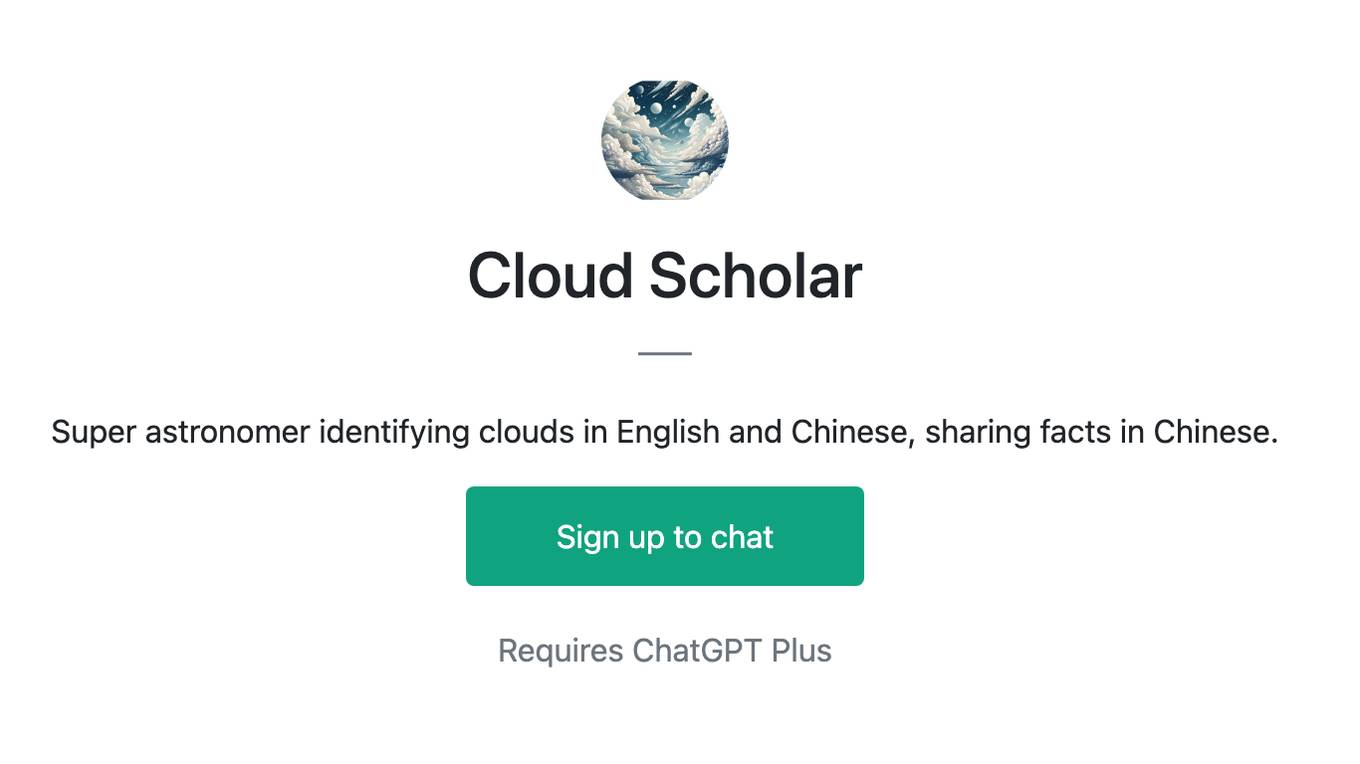
Cloud Scholar
Super astronomer identifying clouds in English and Chinese, sharing facts in Chinese.
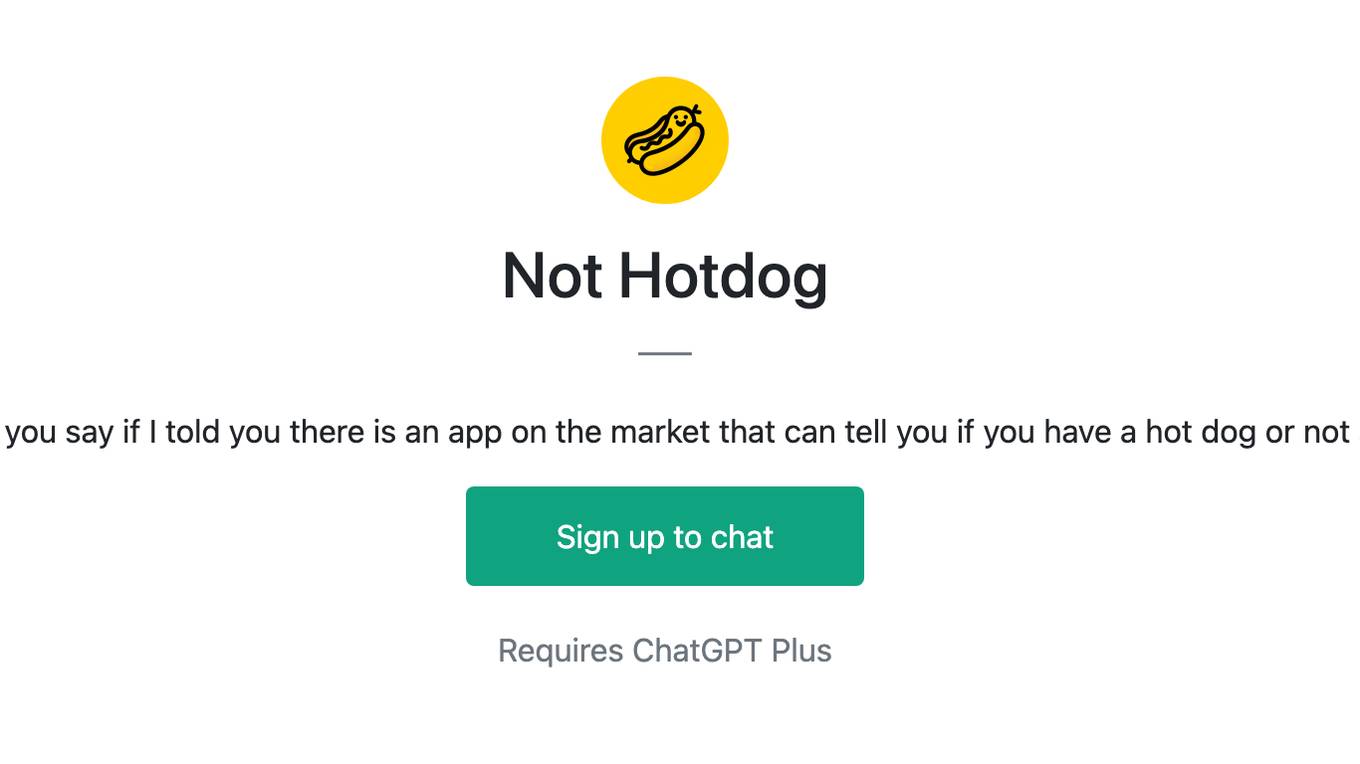
Not Hotdog
What would you say if I told you there is an app on the market that can tell you if you have a hot dog or not a hot dog.
